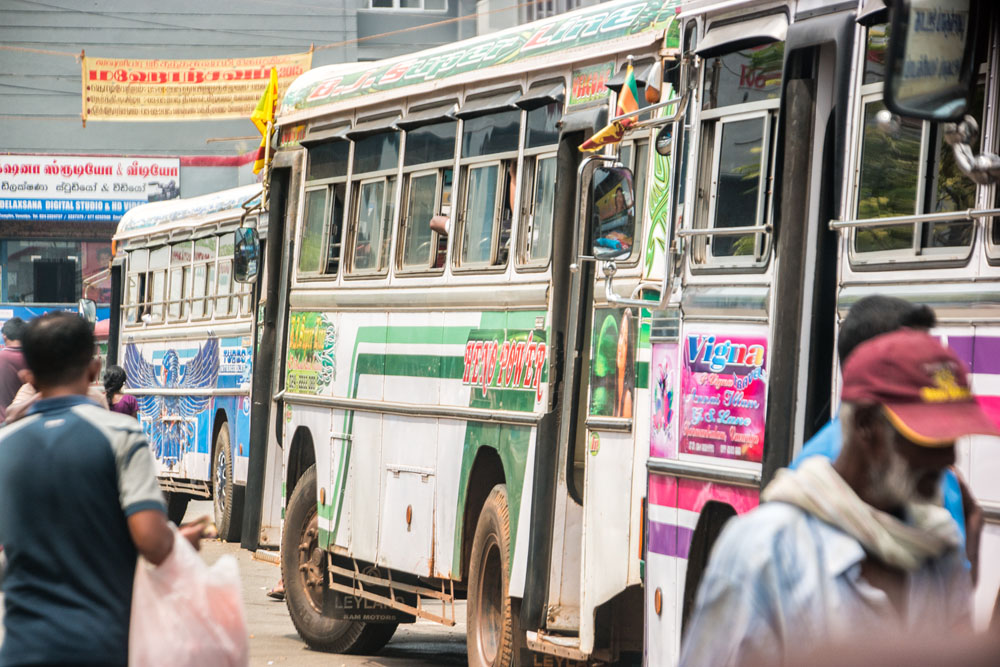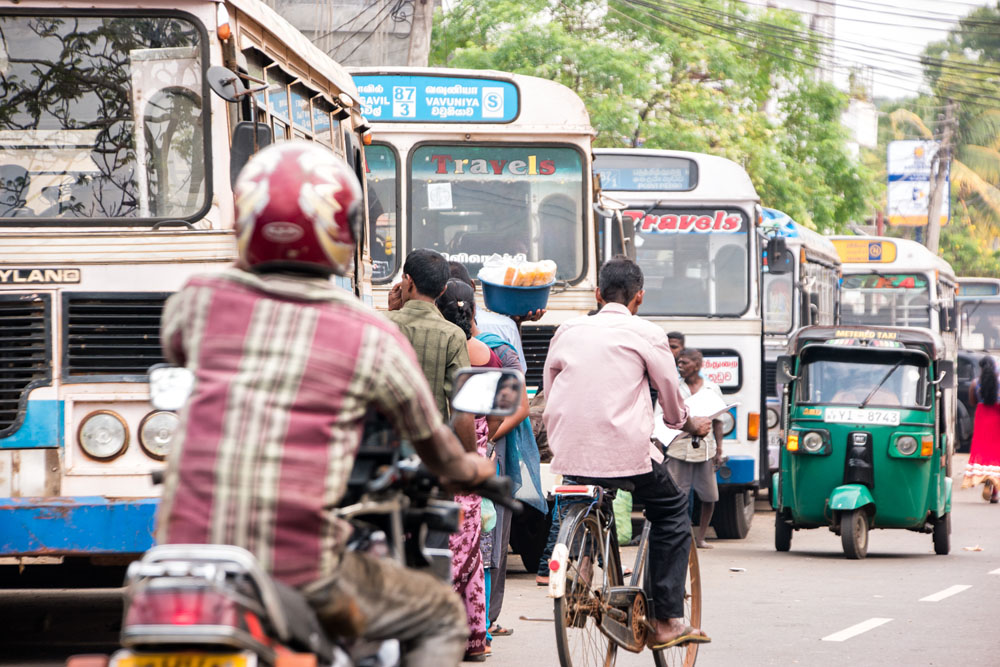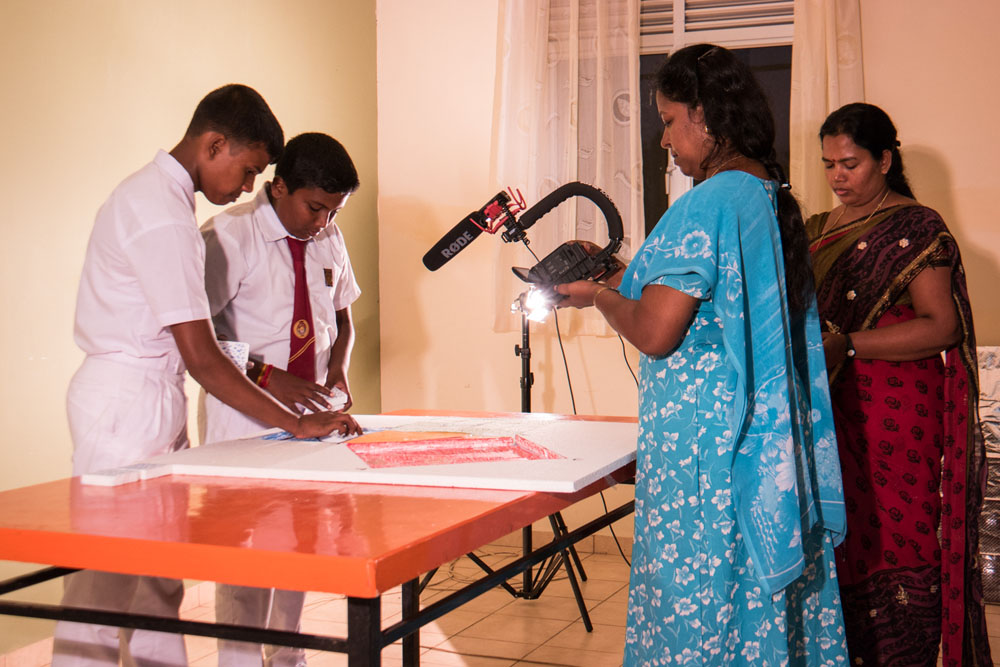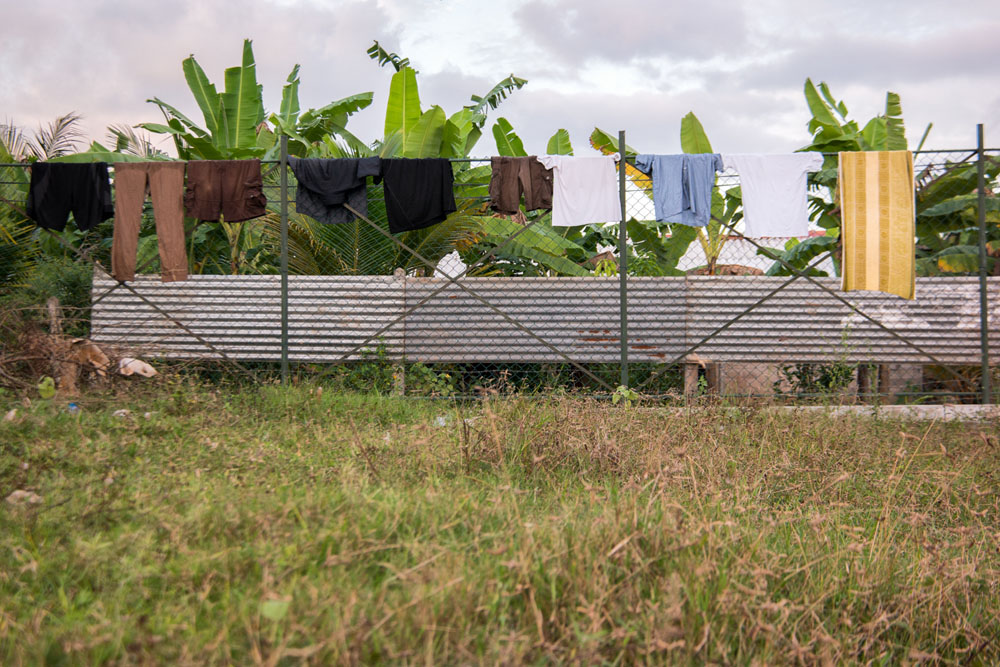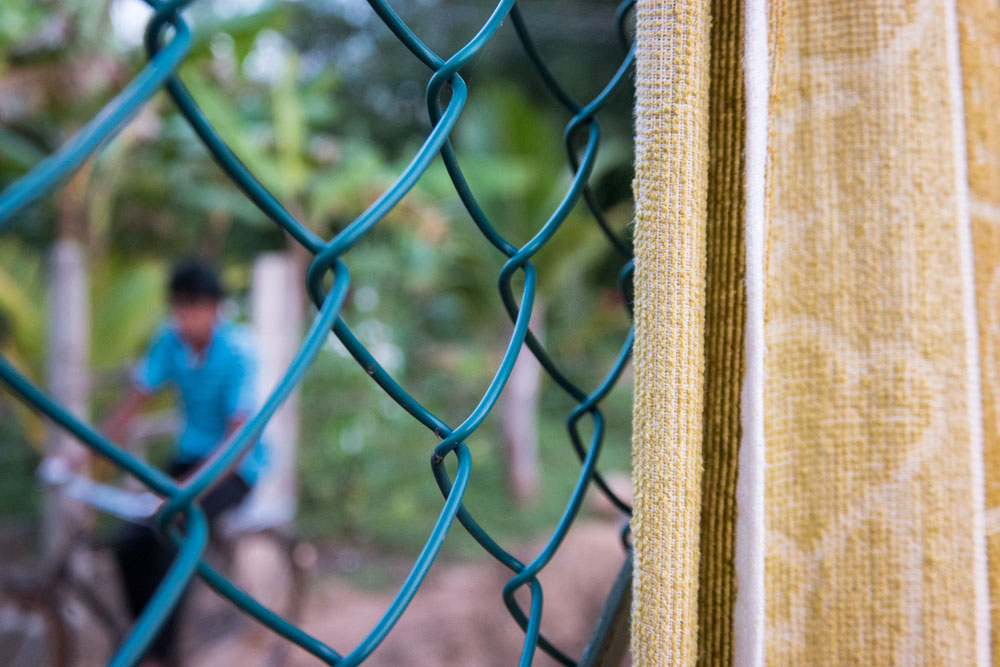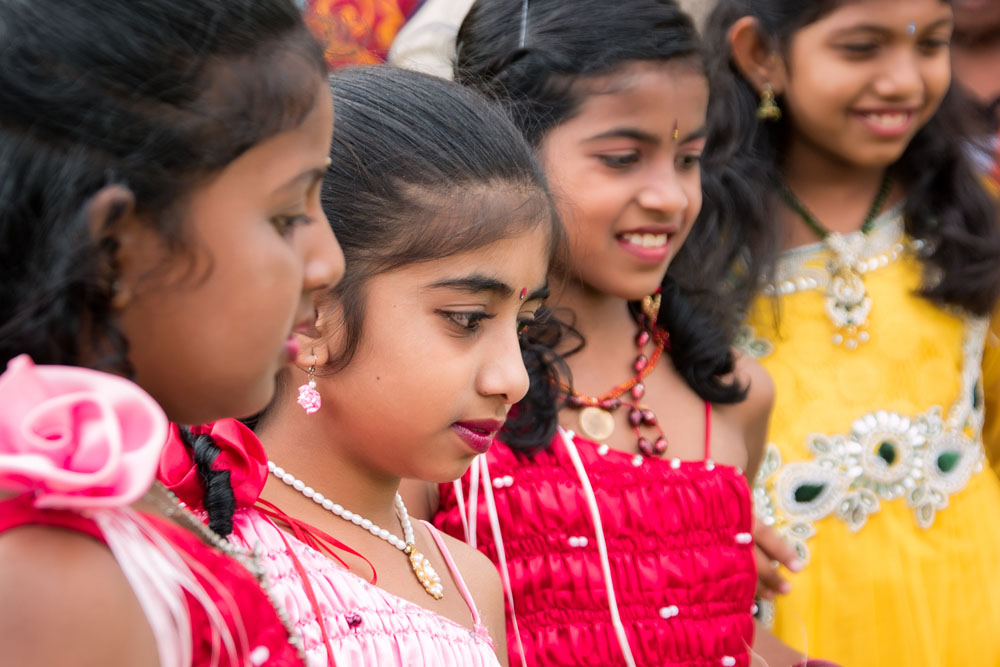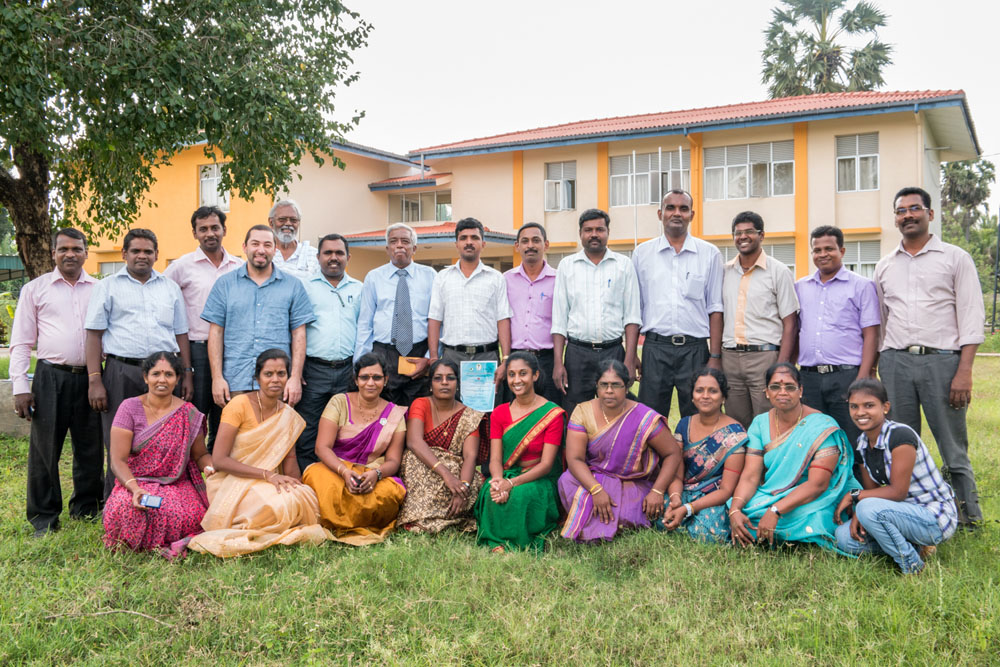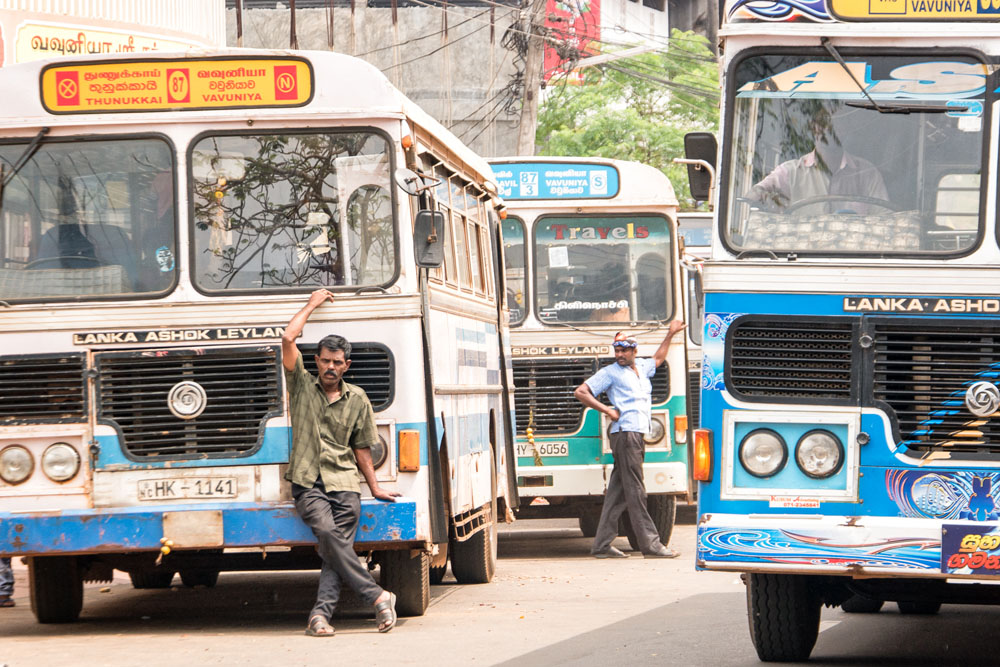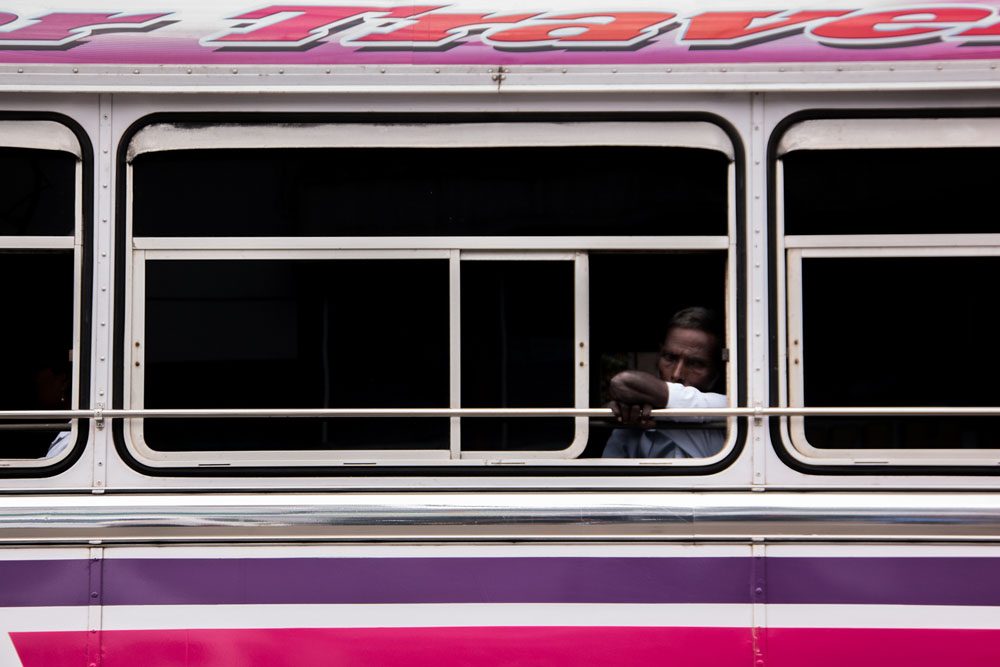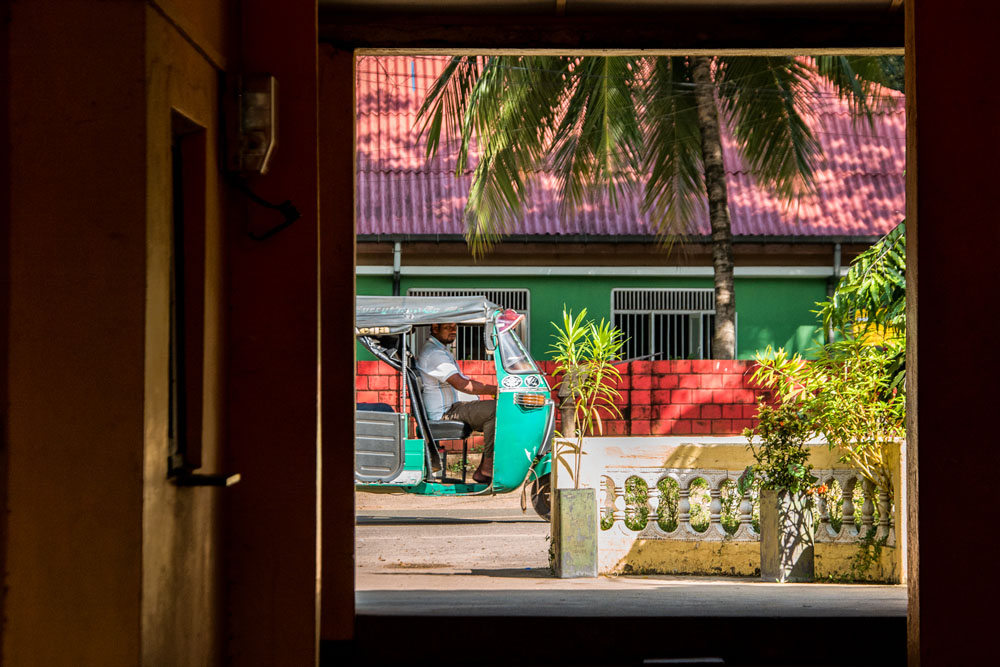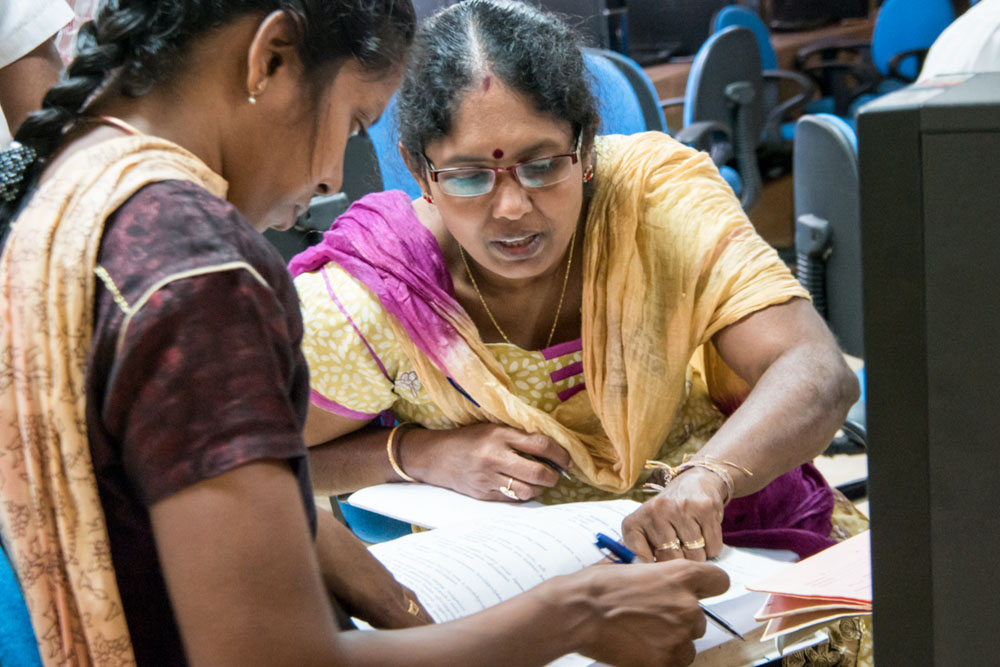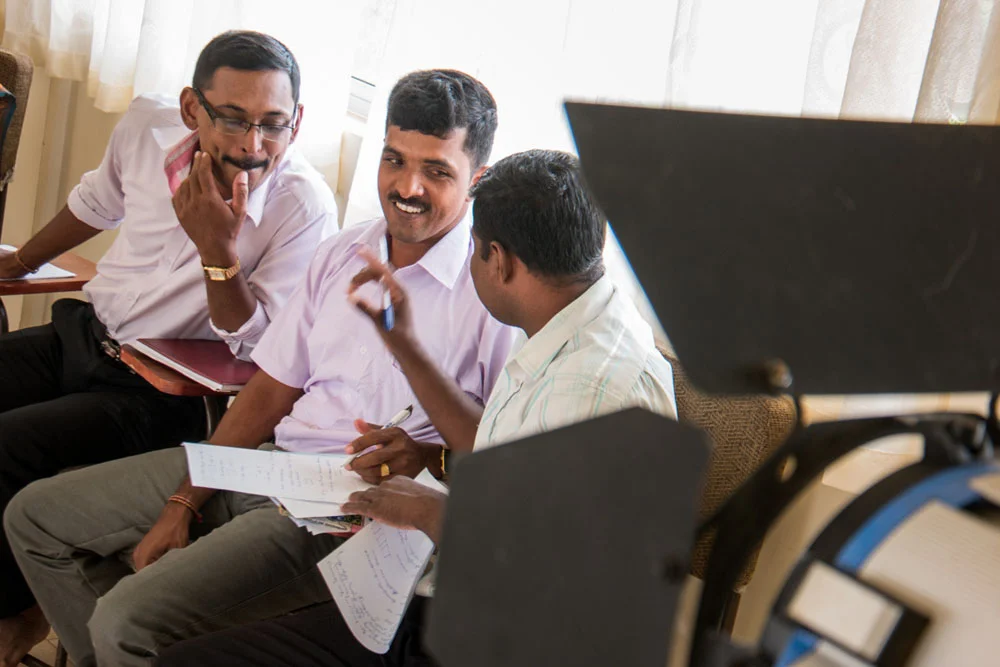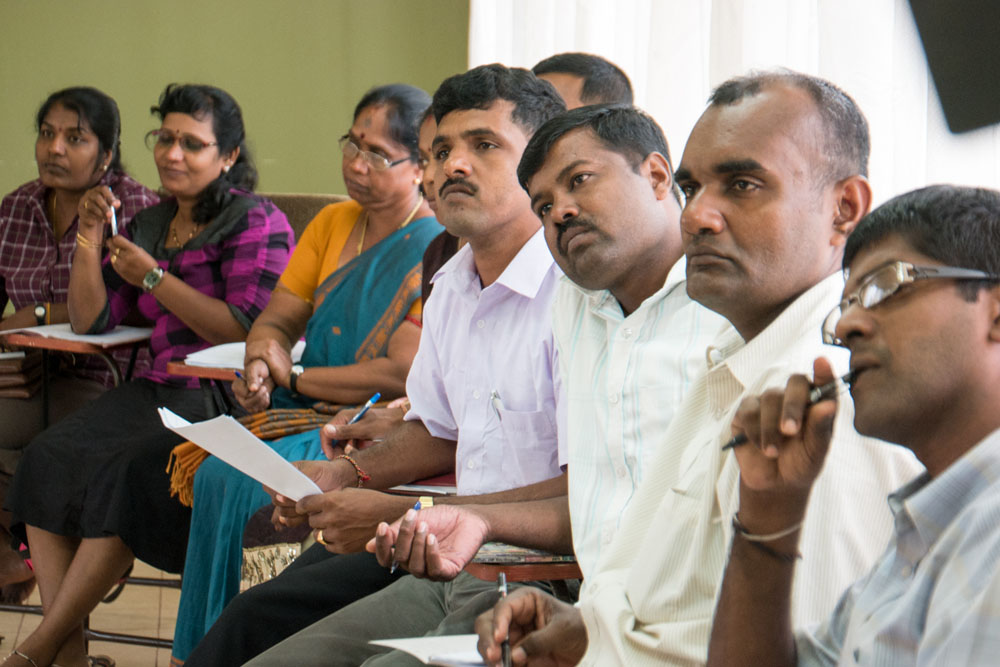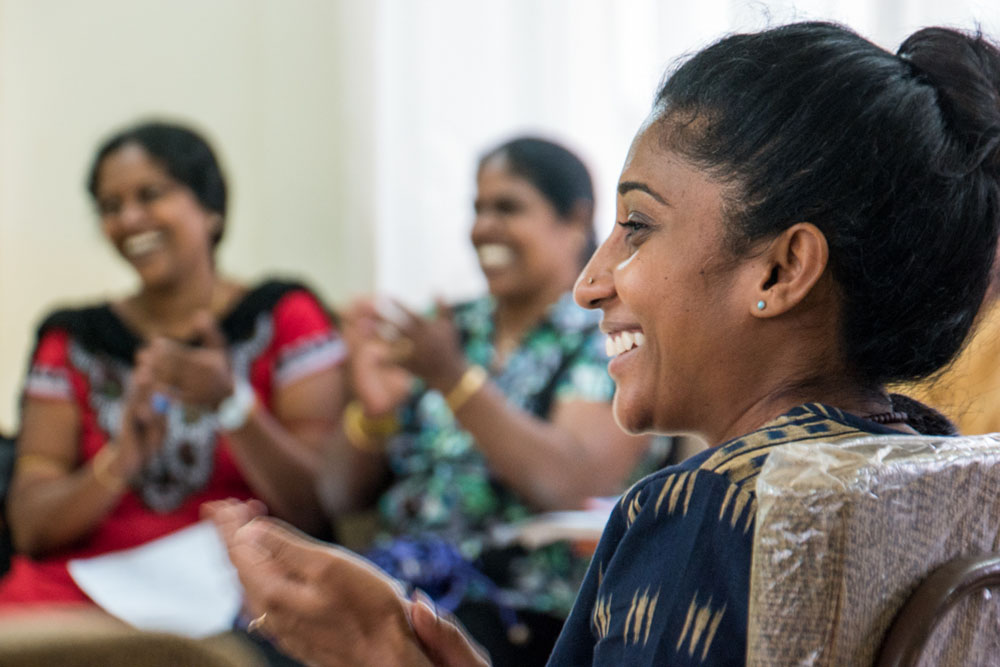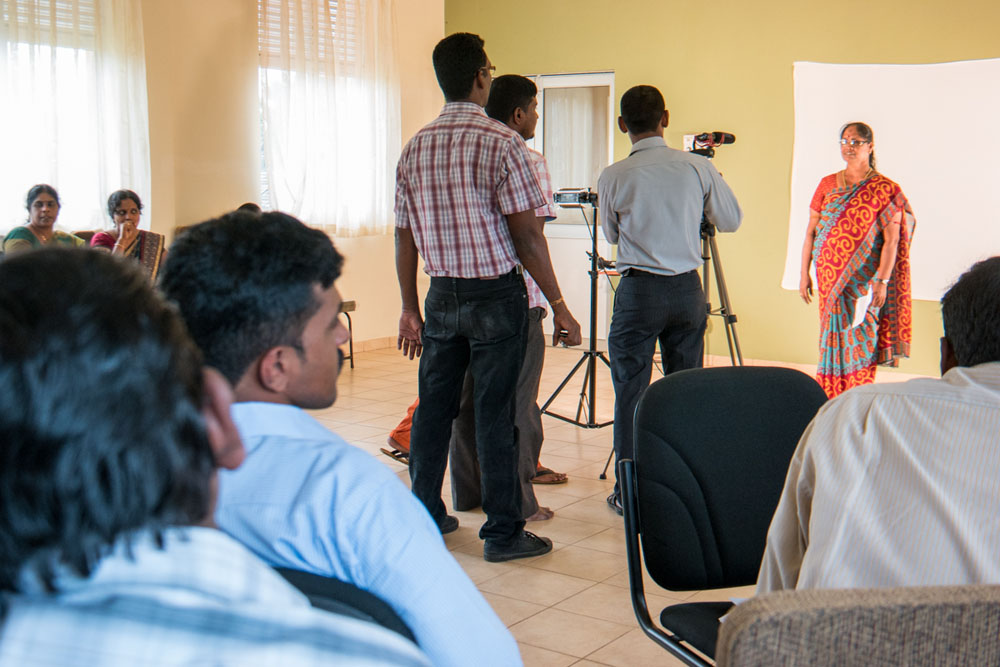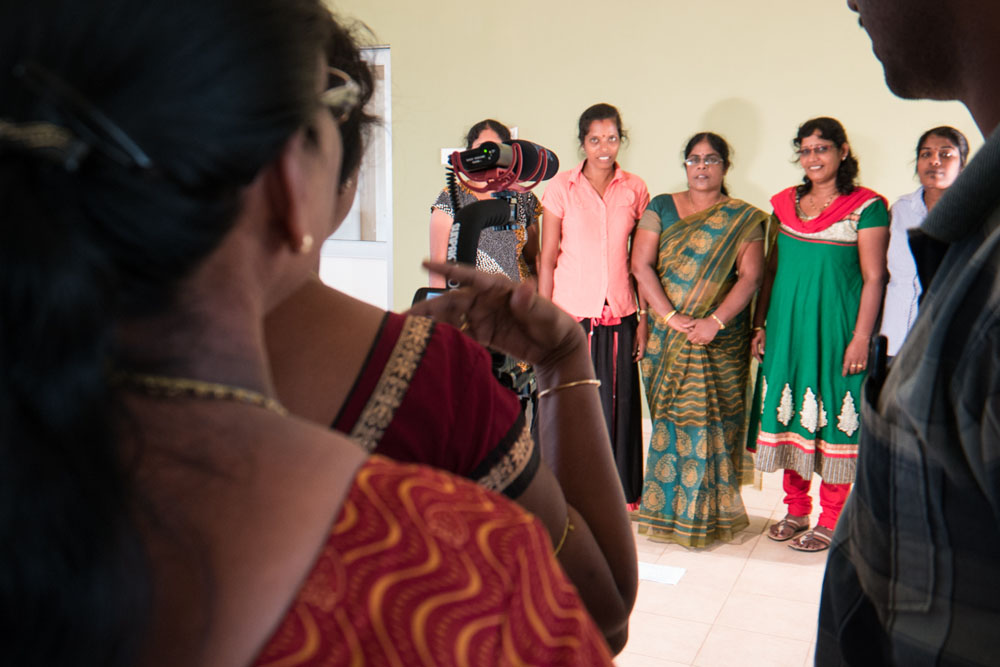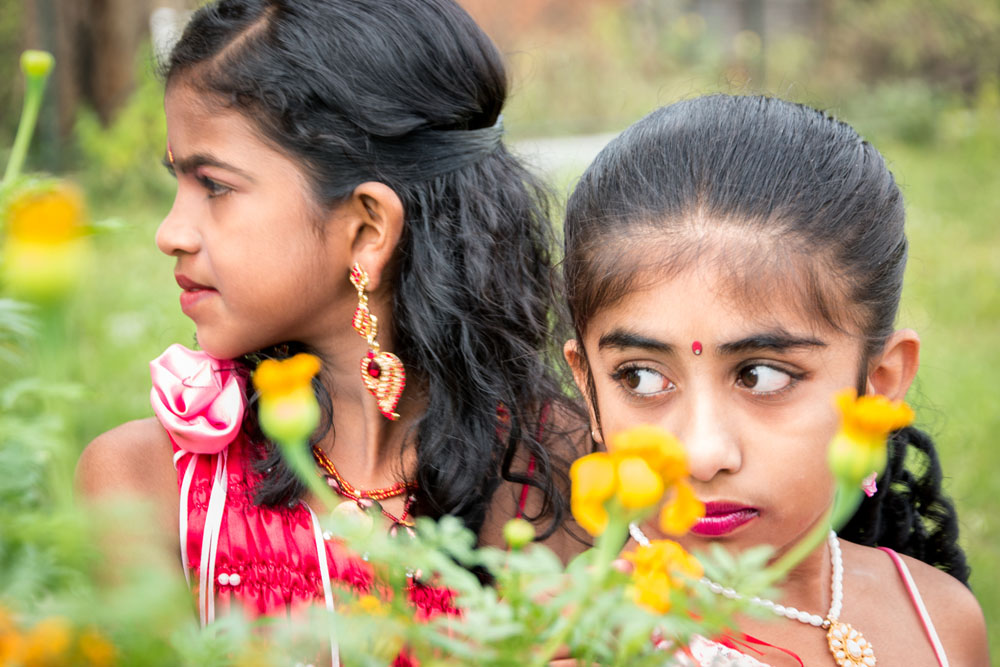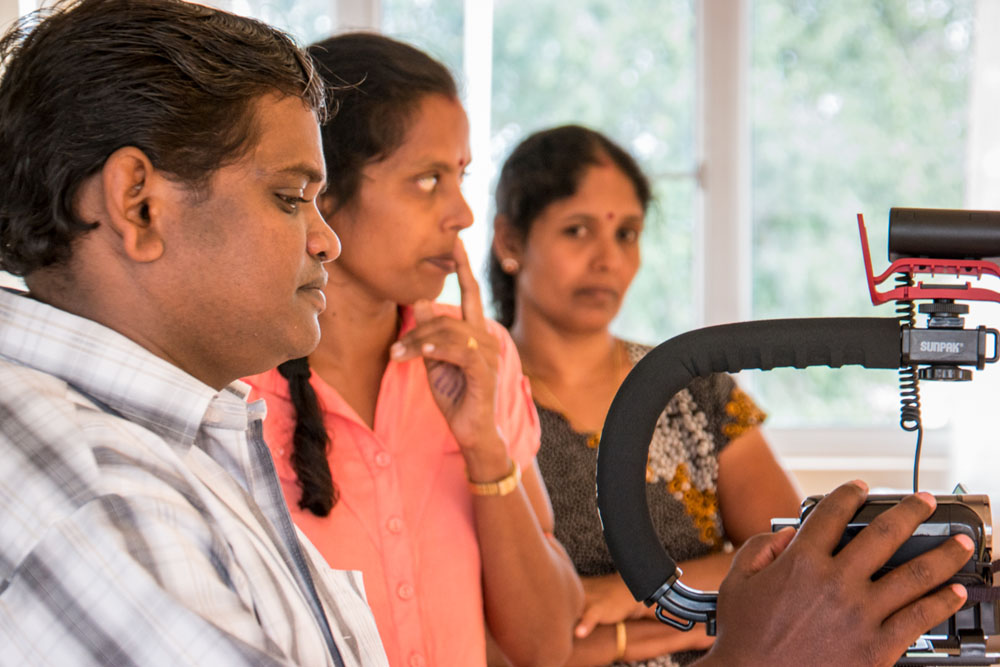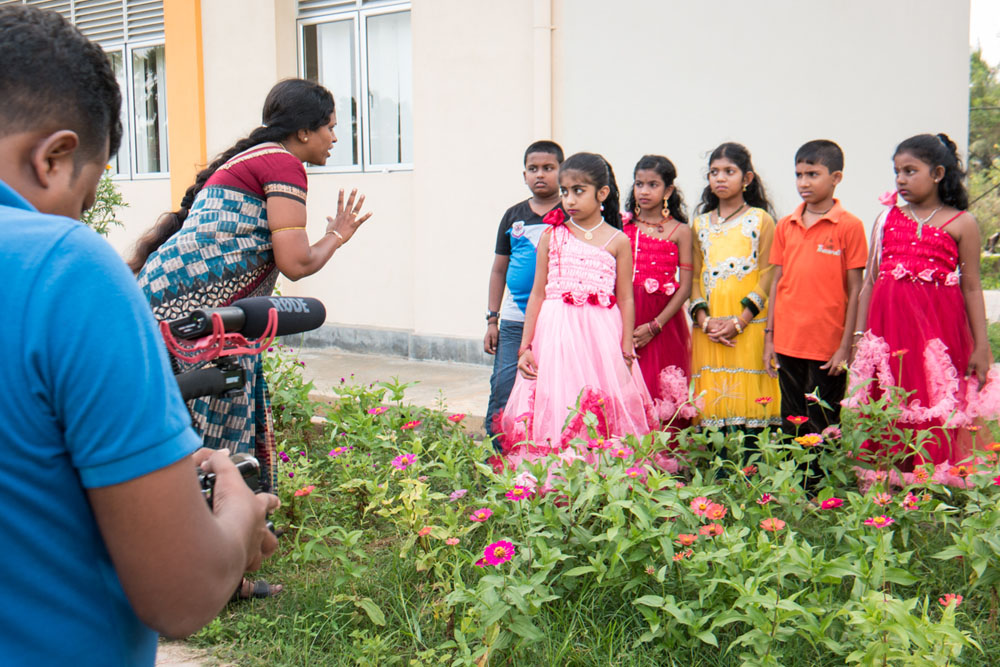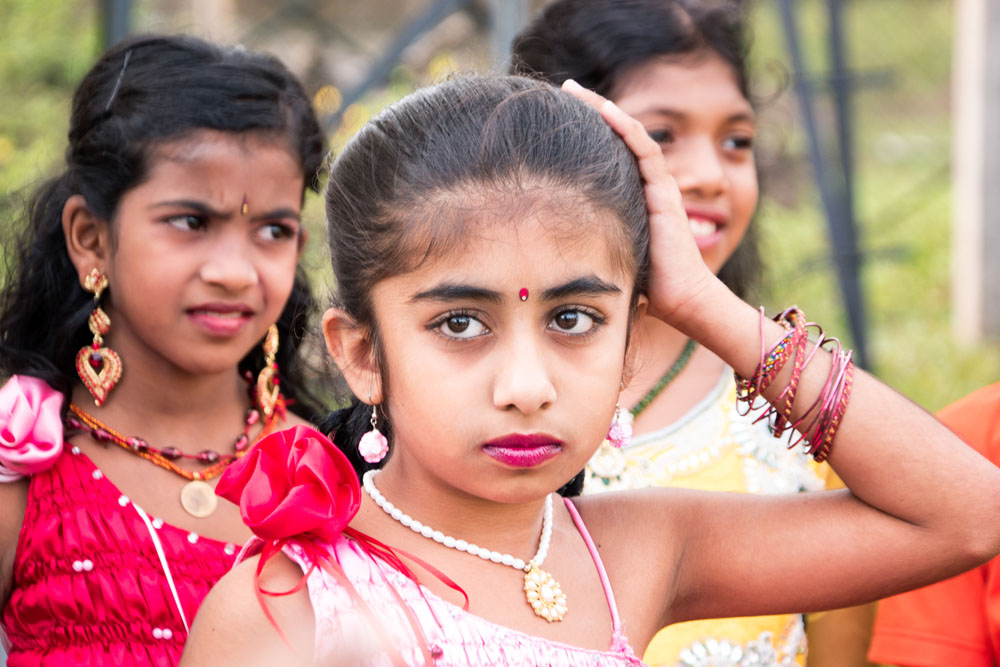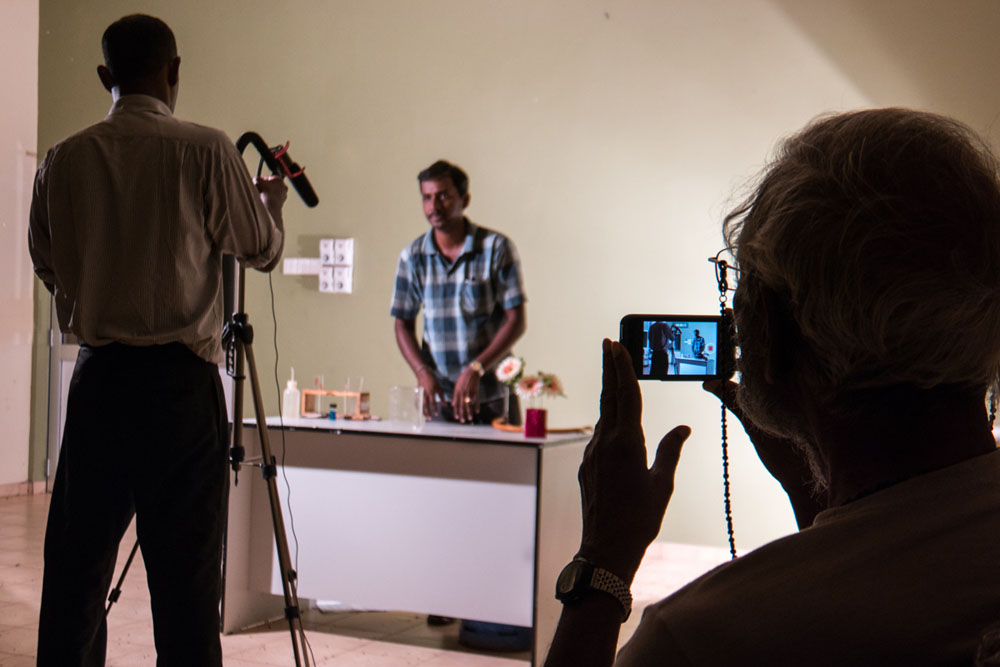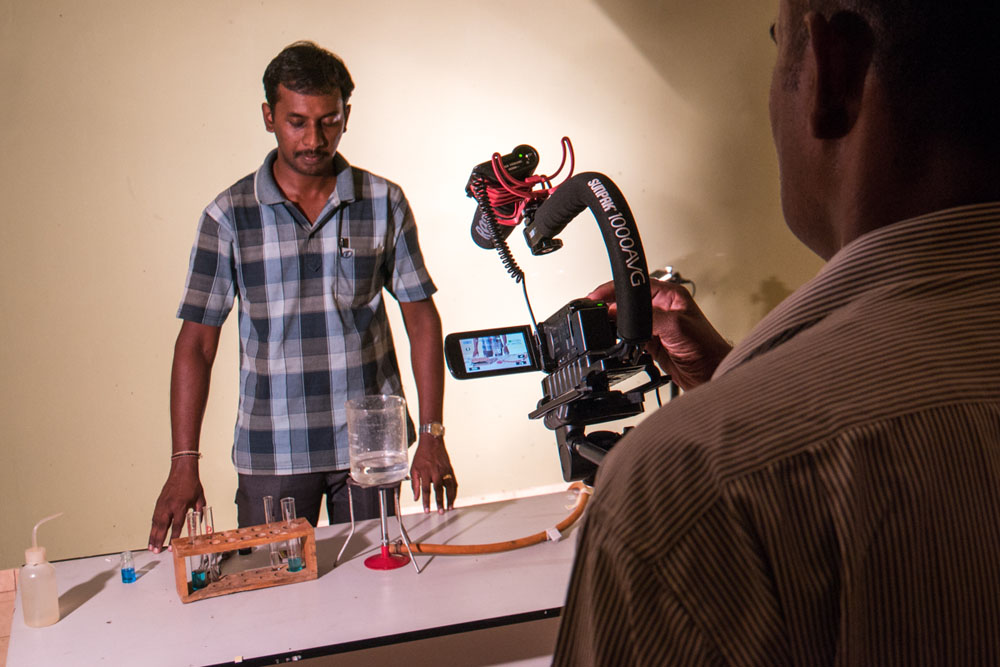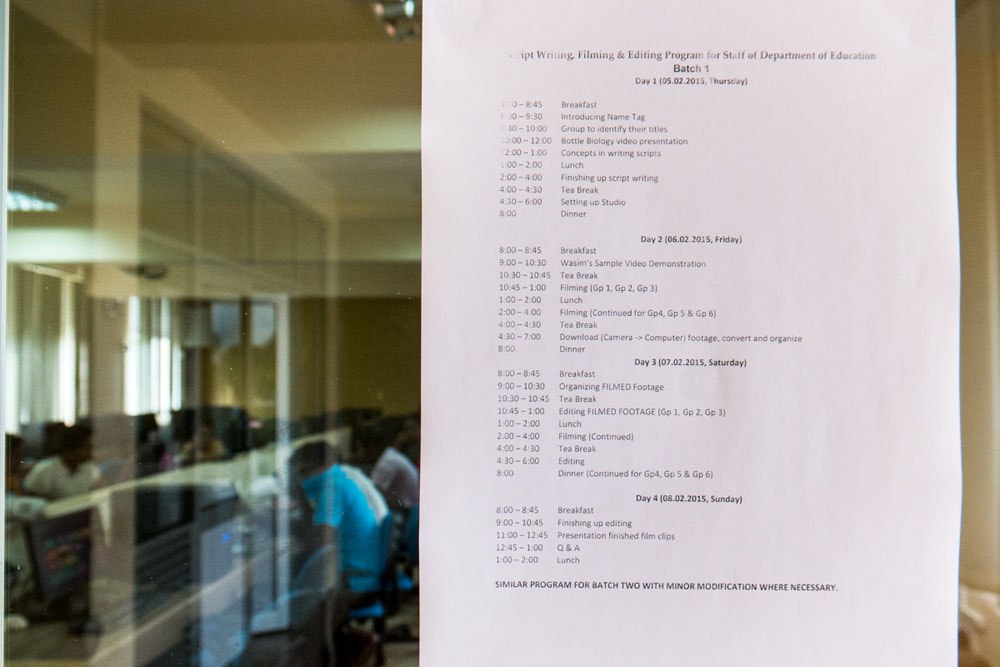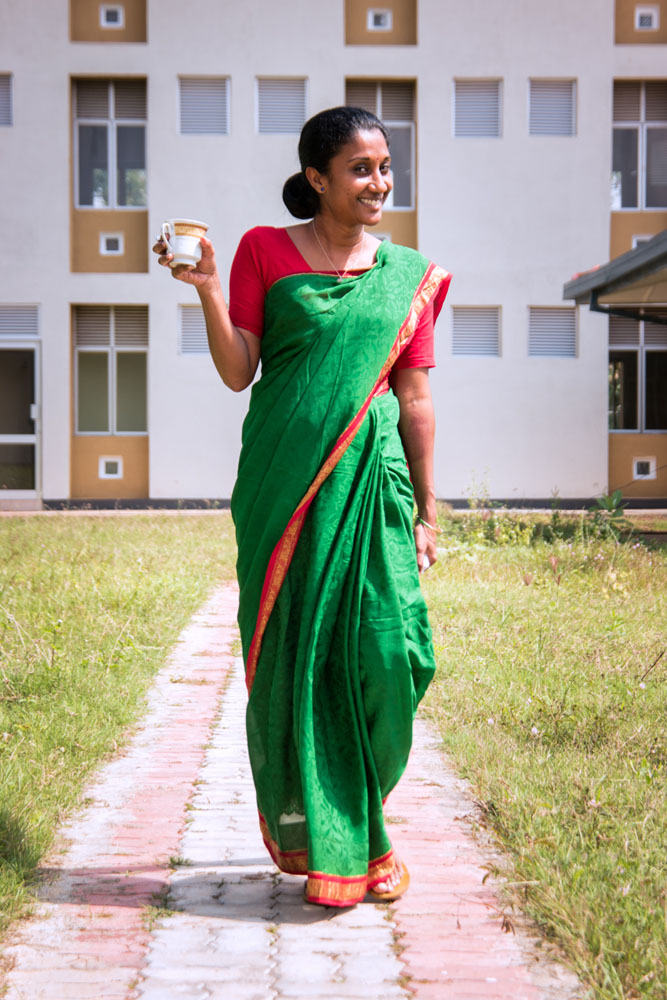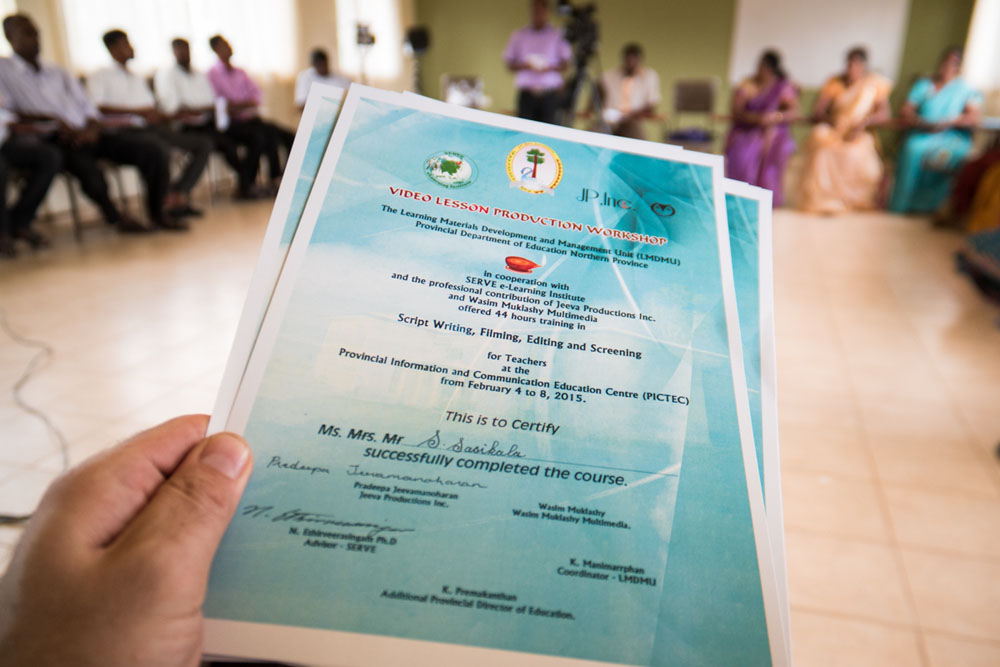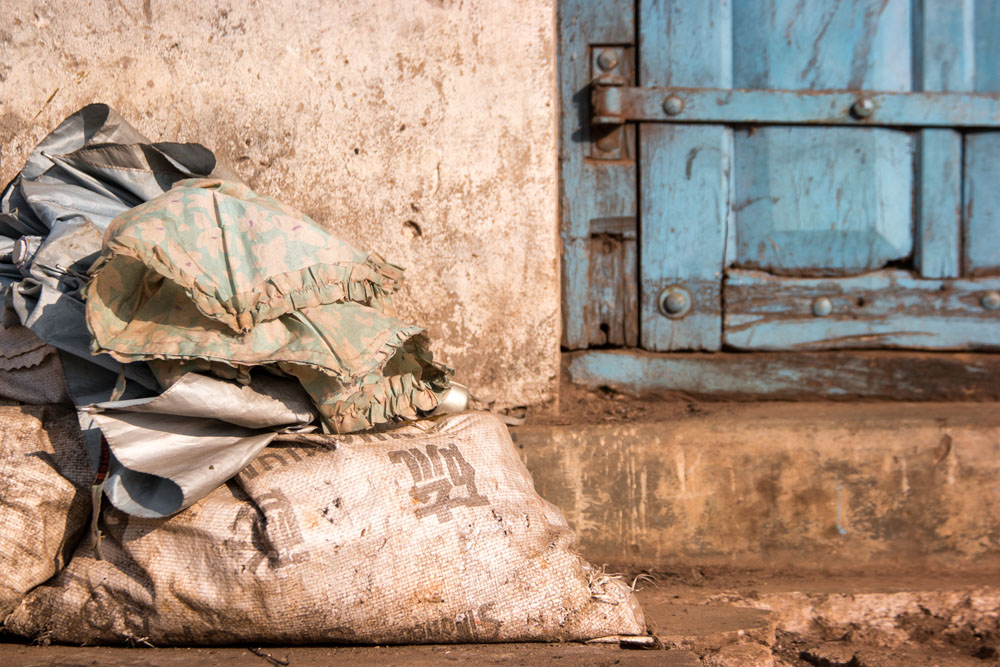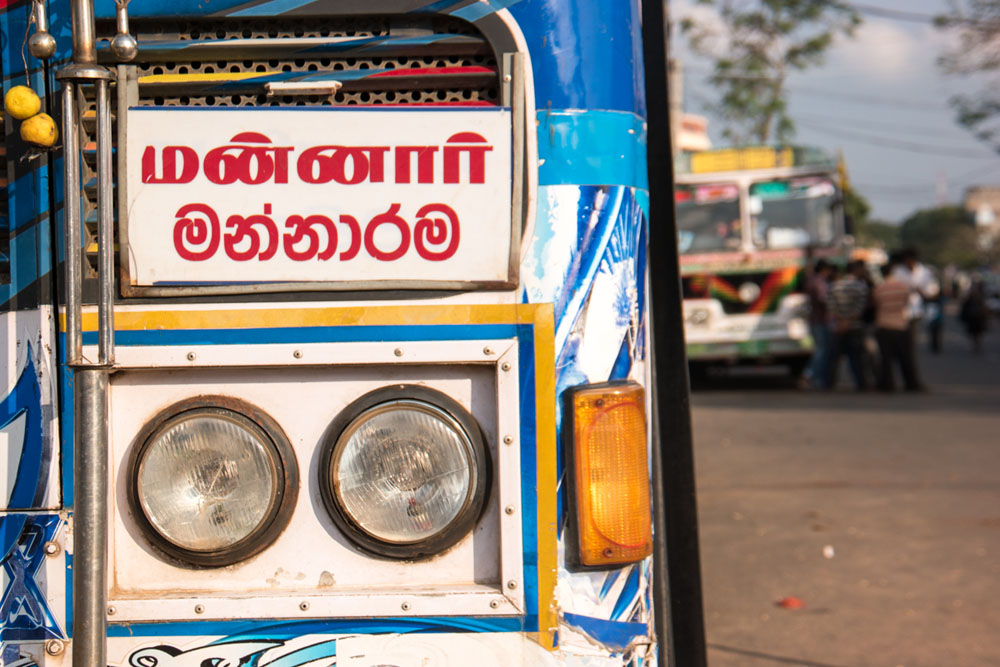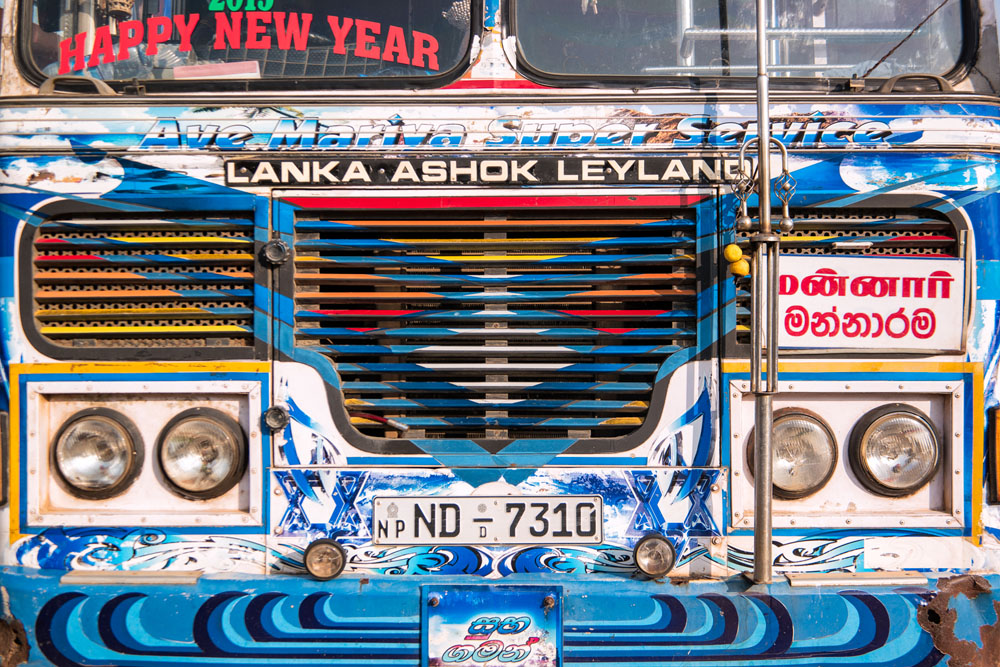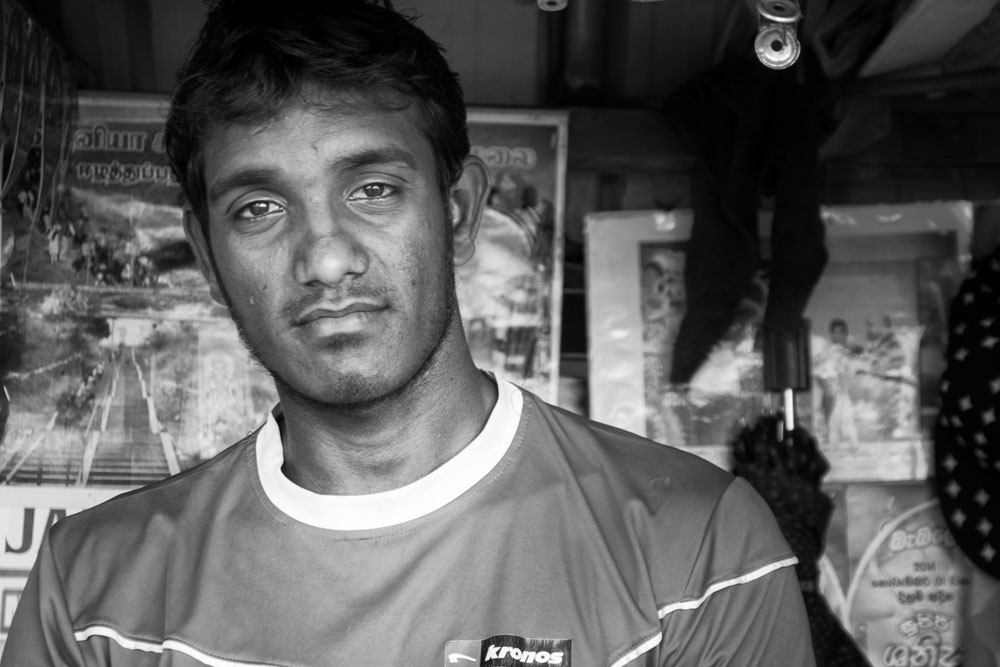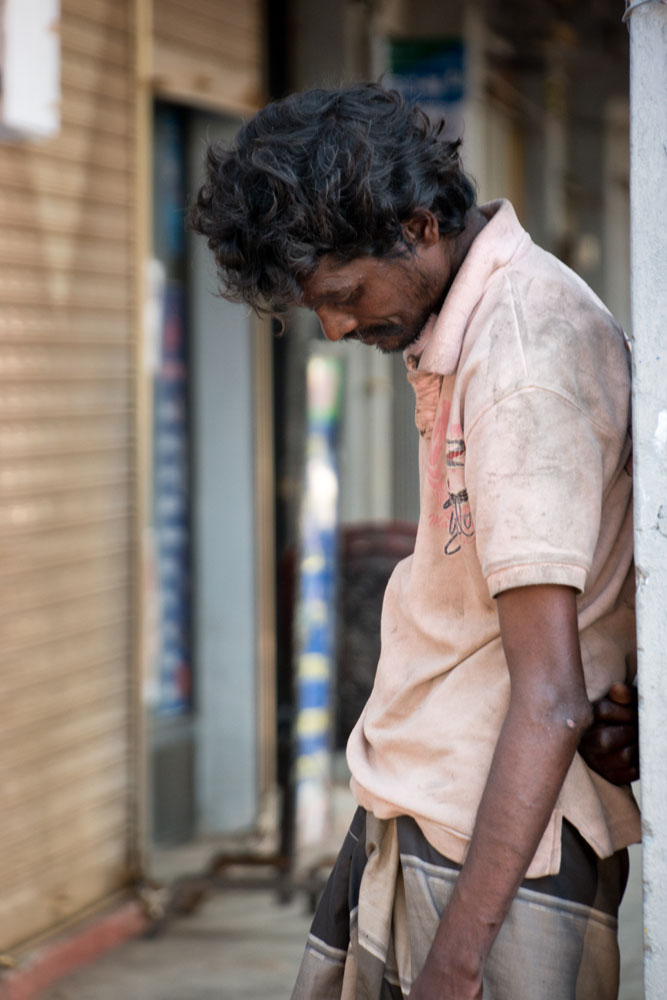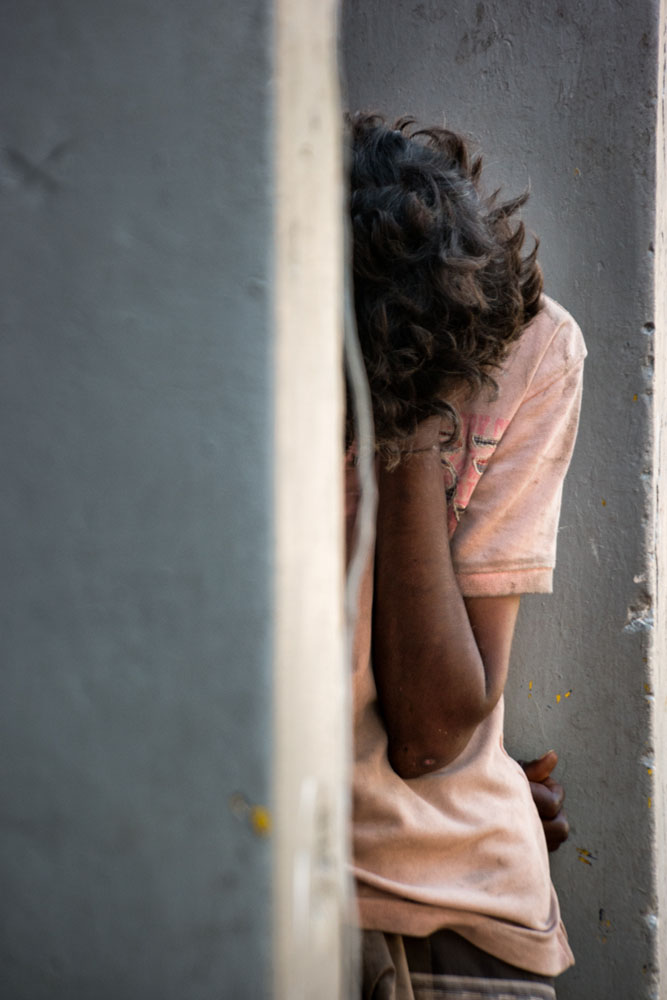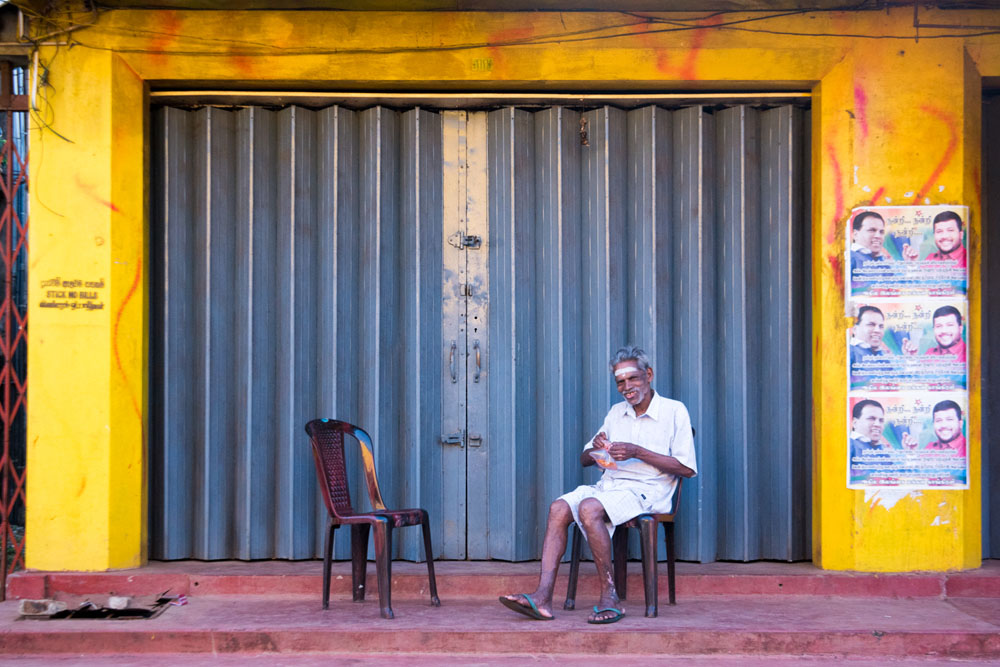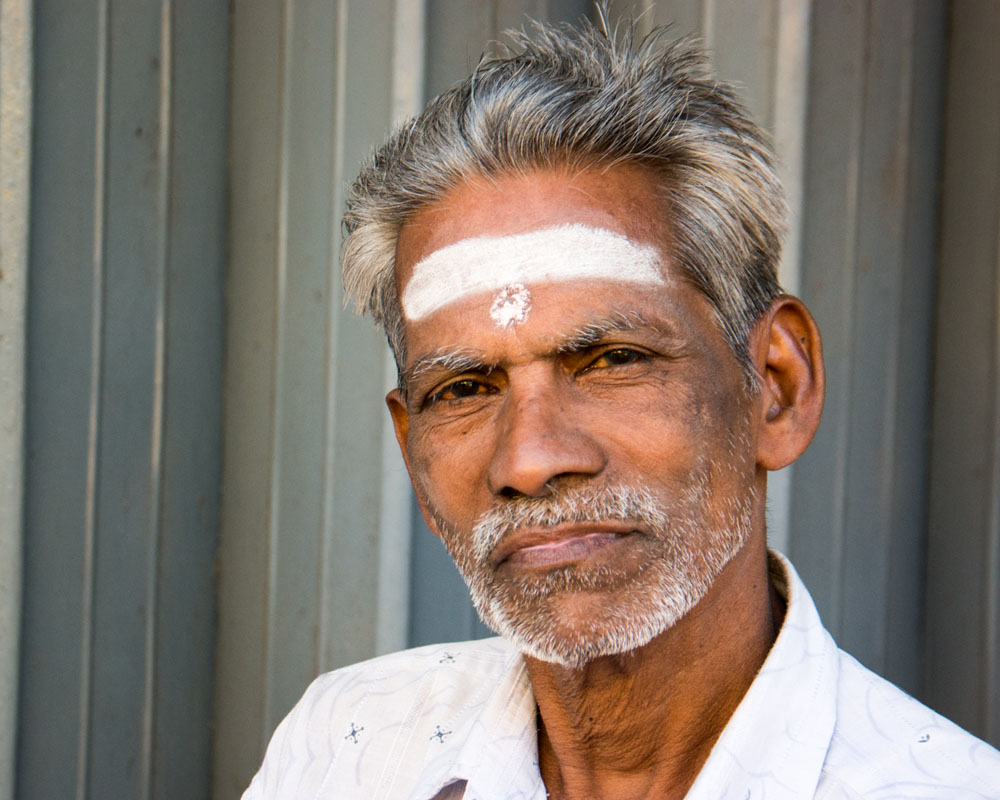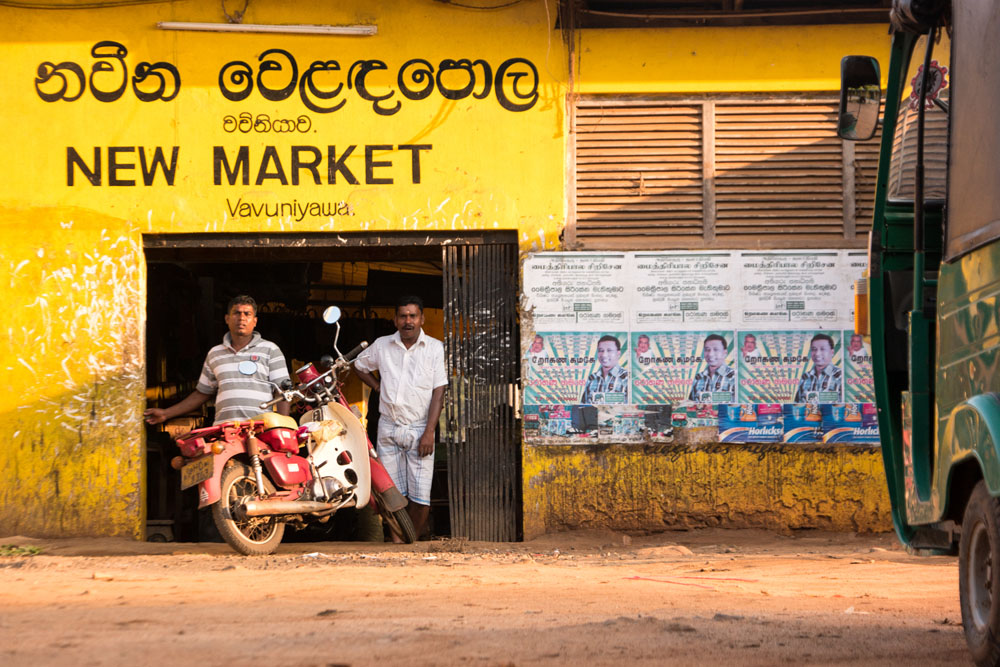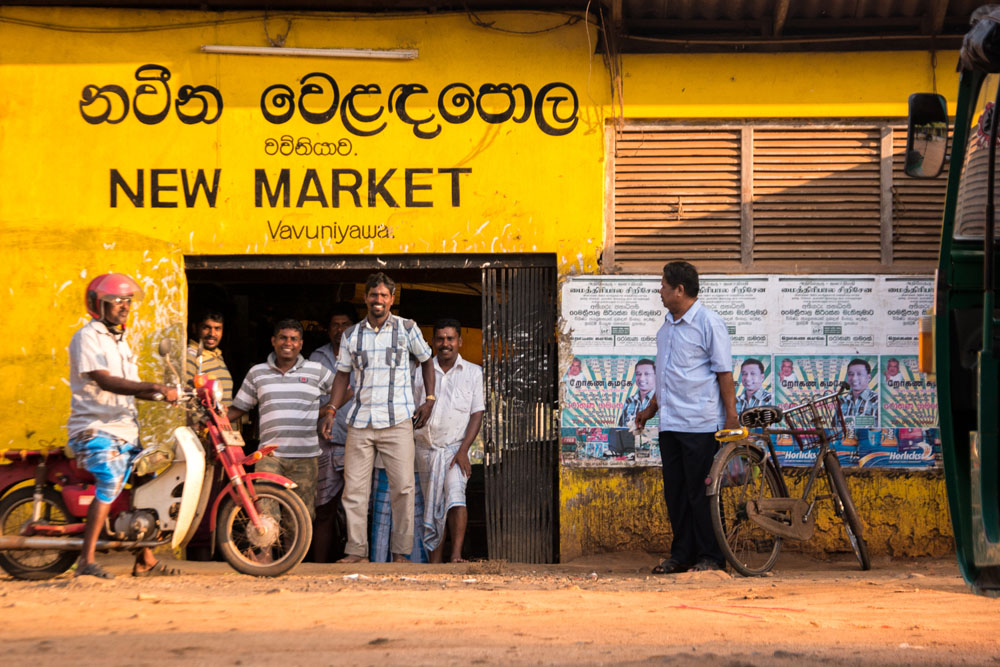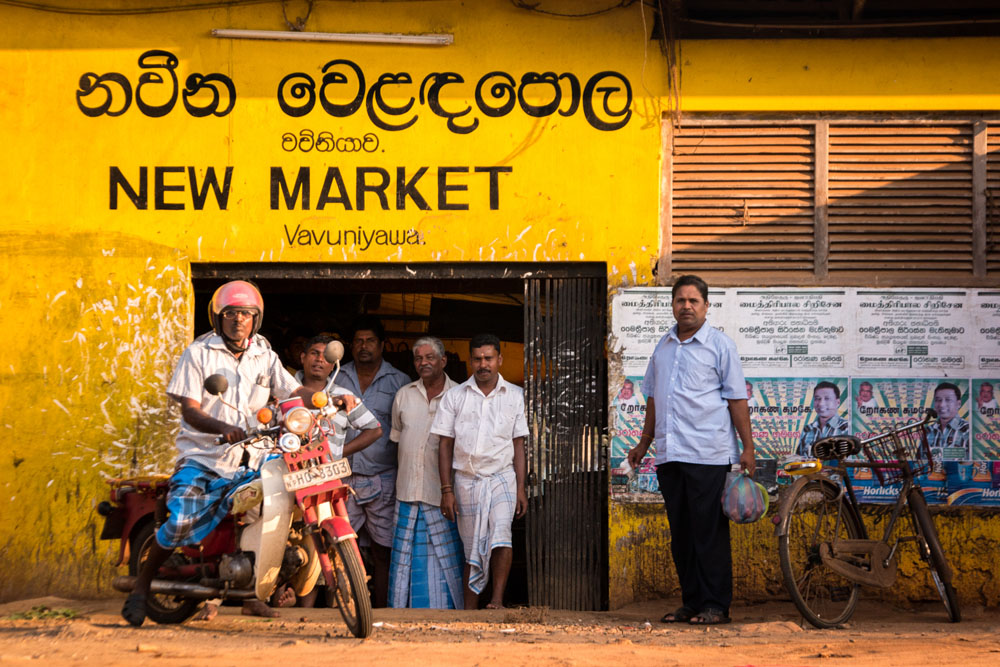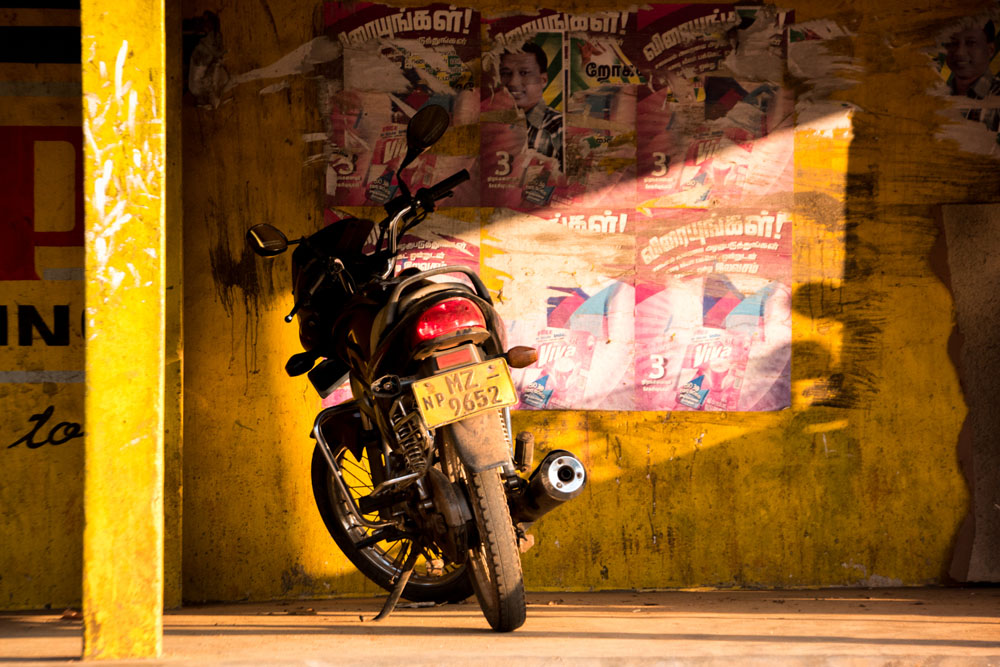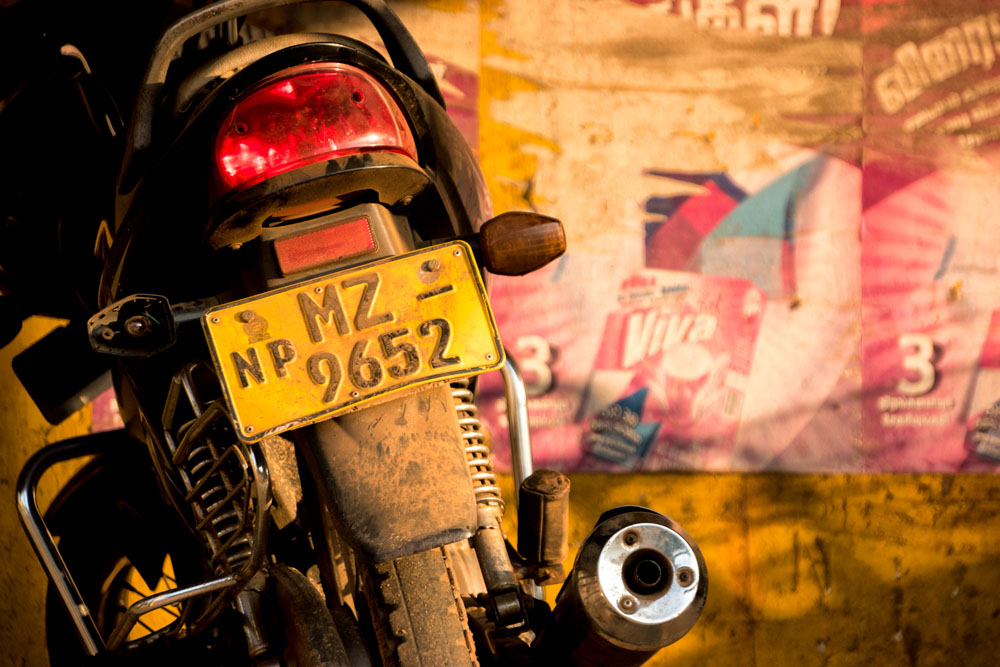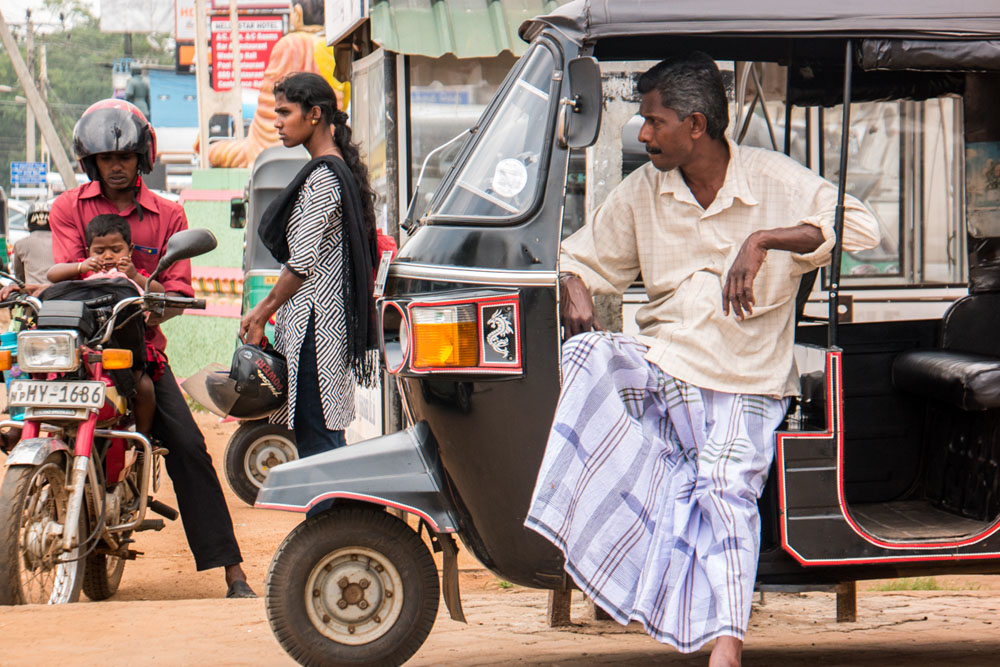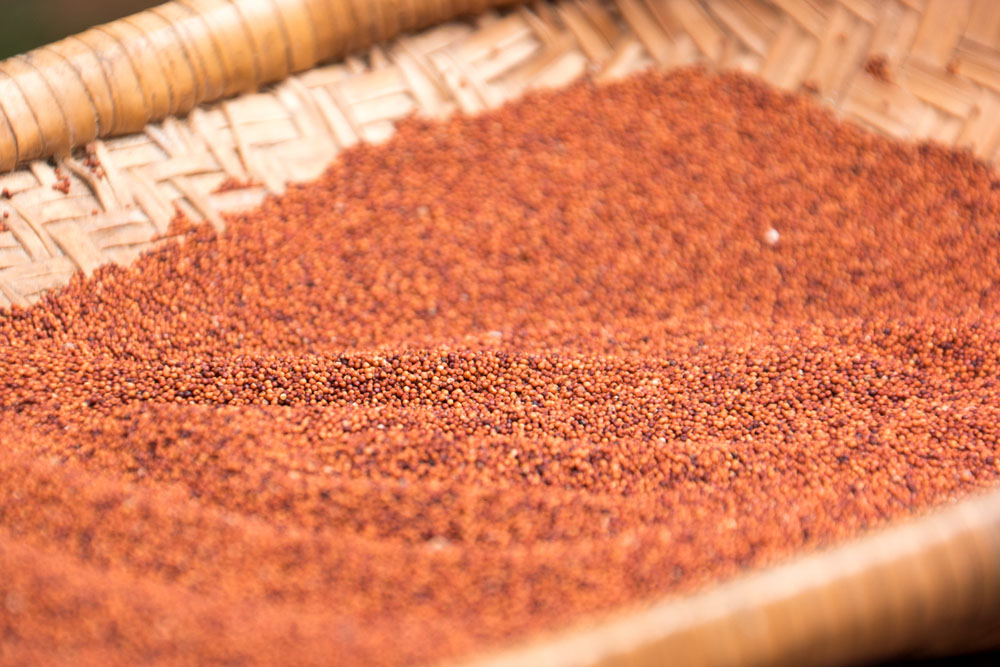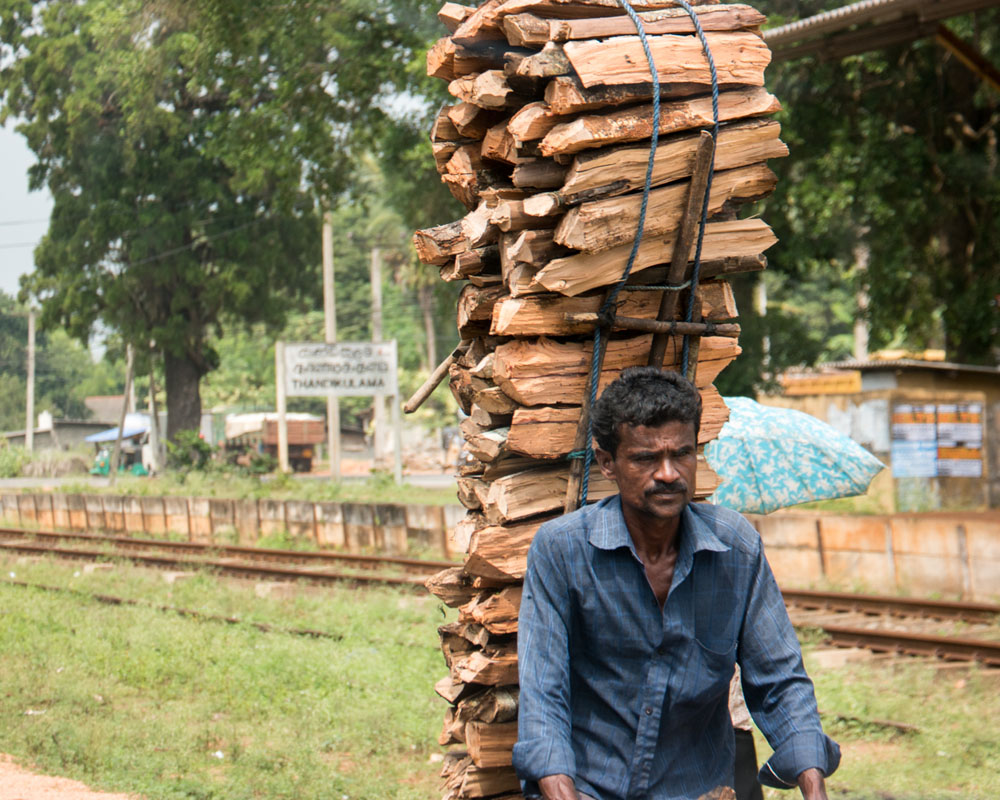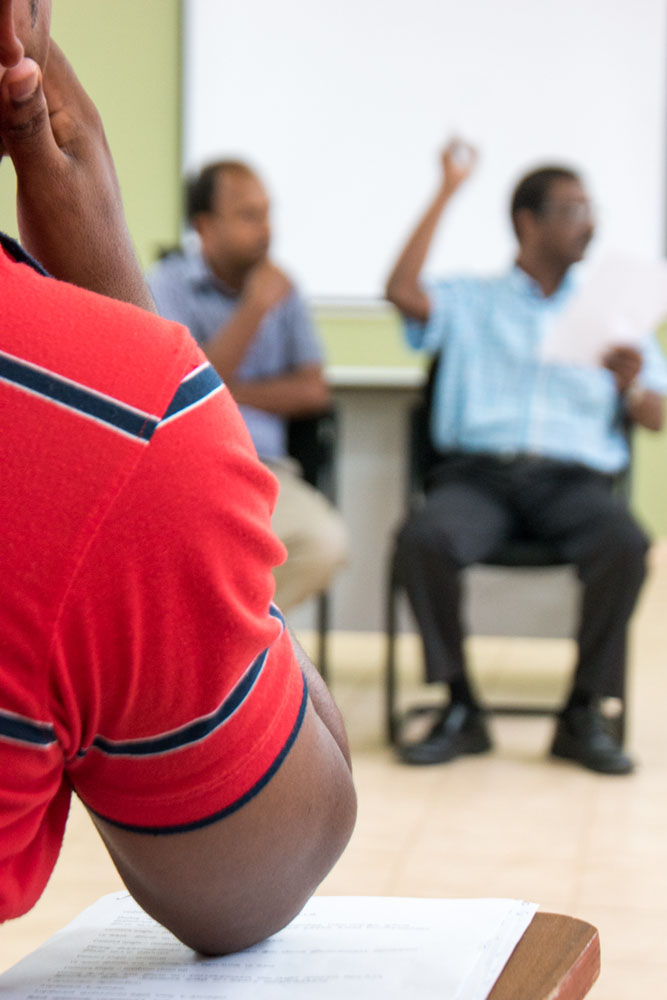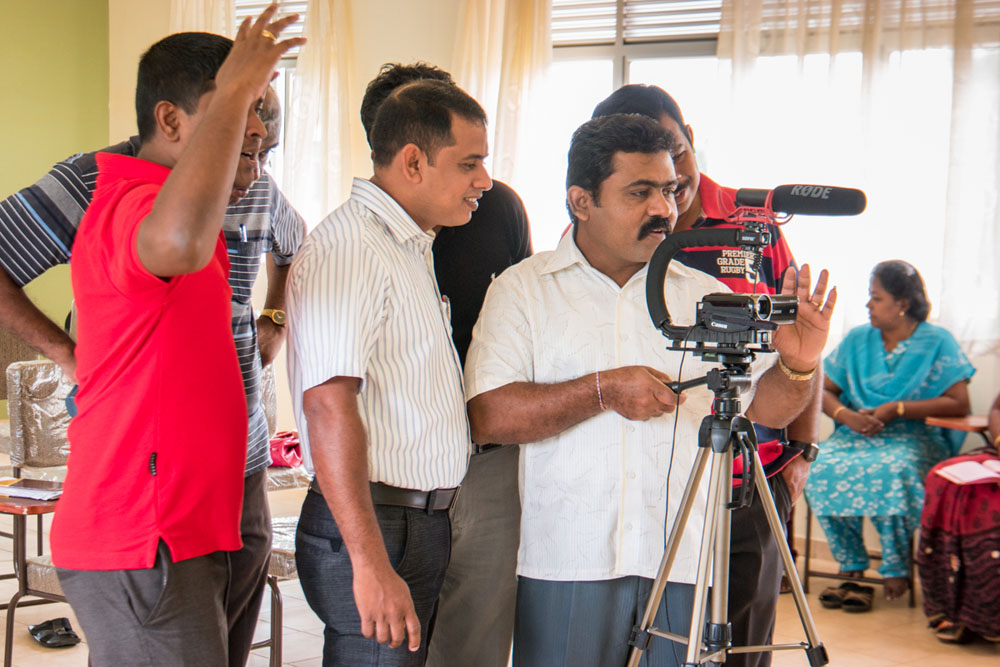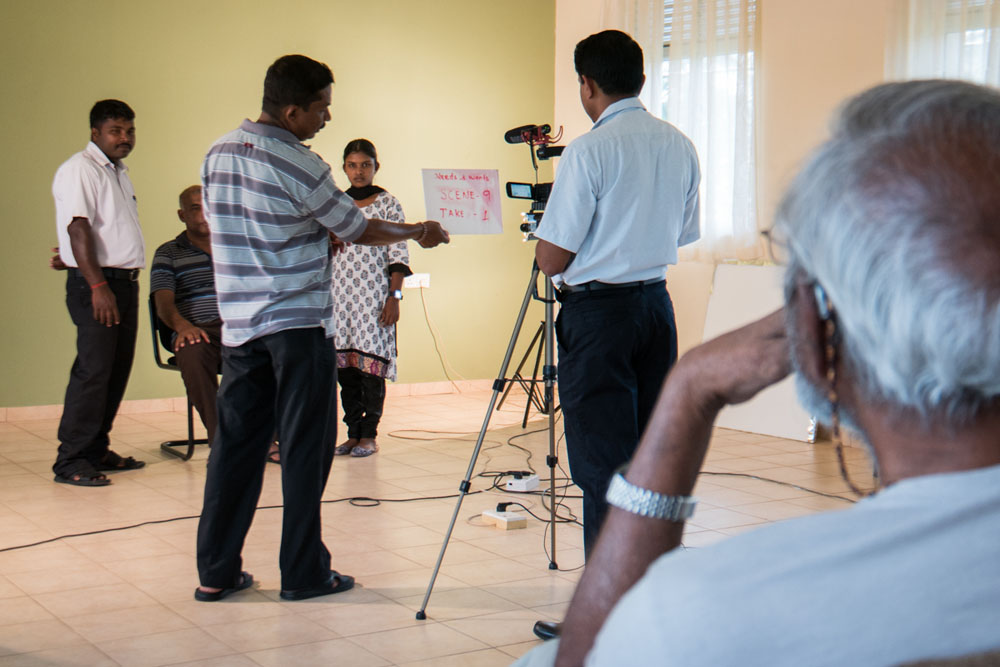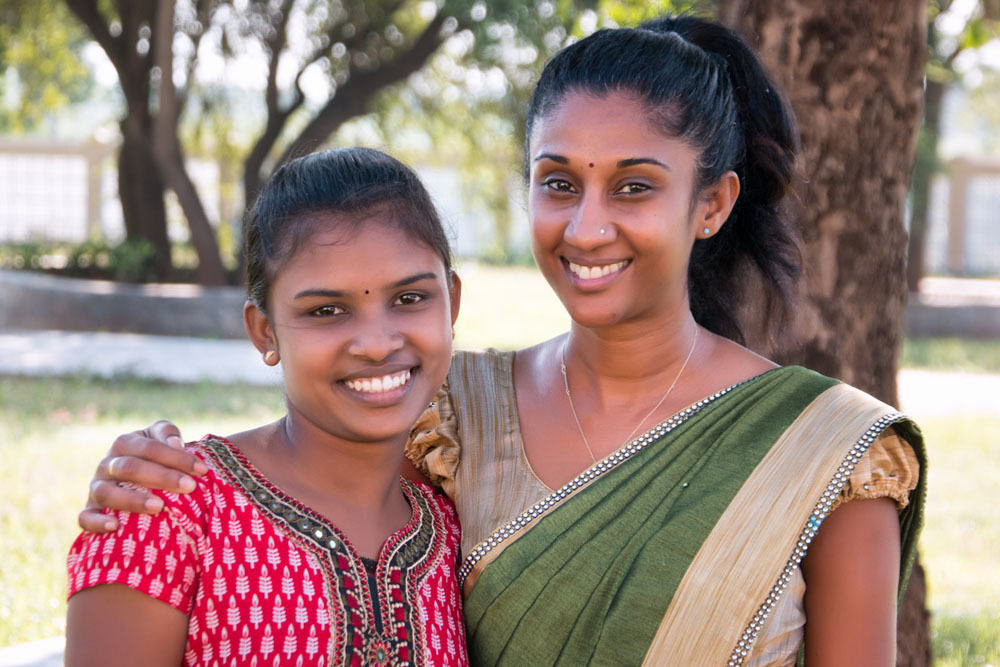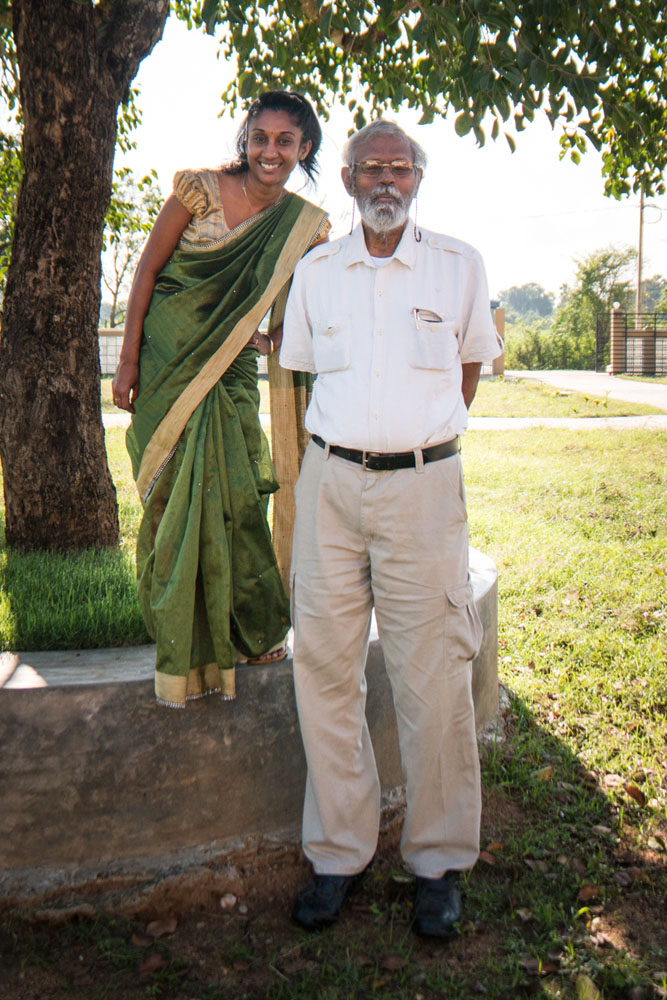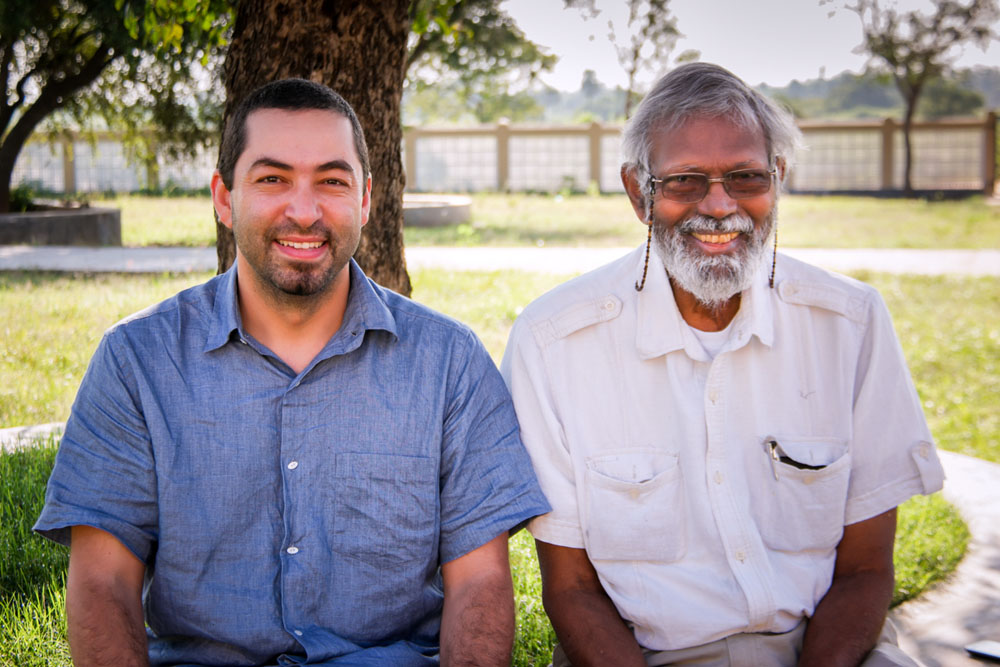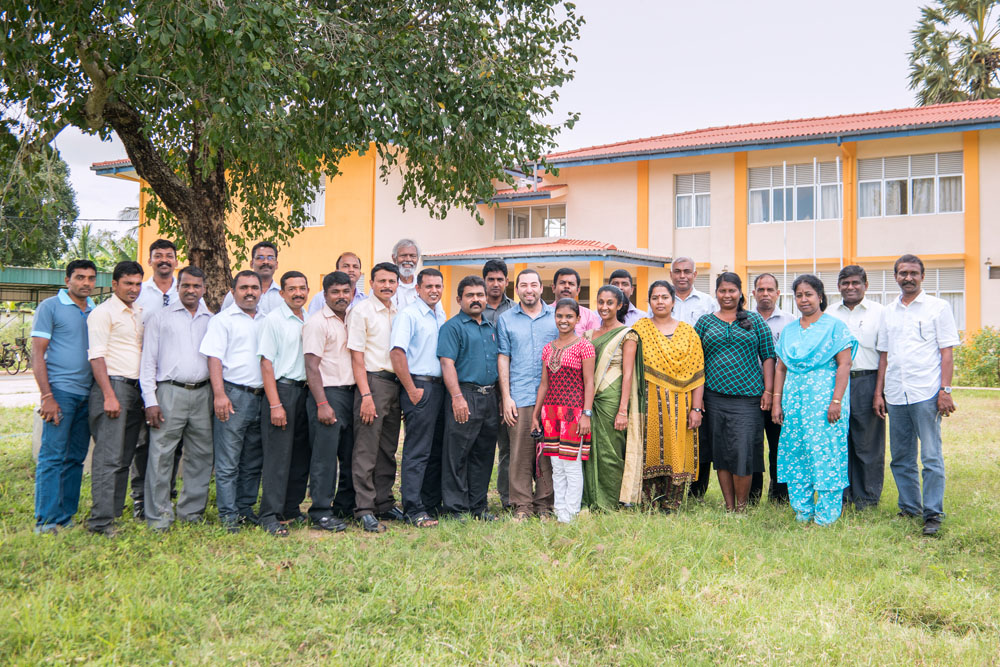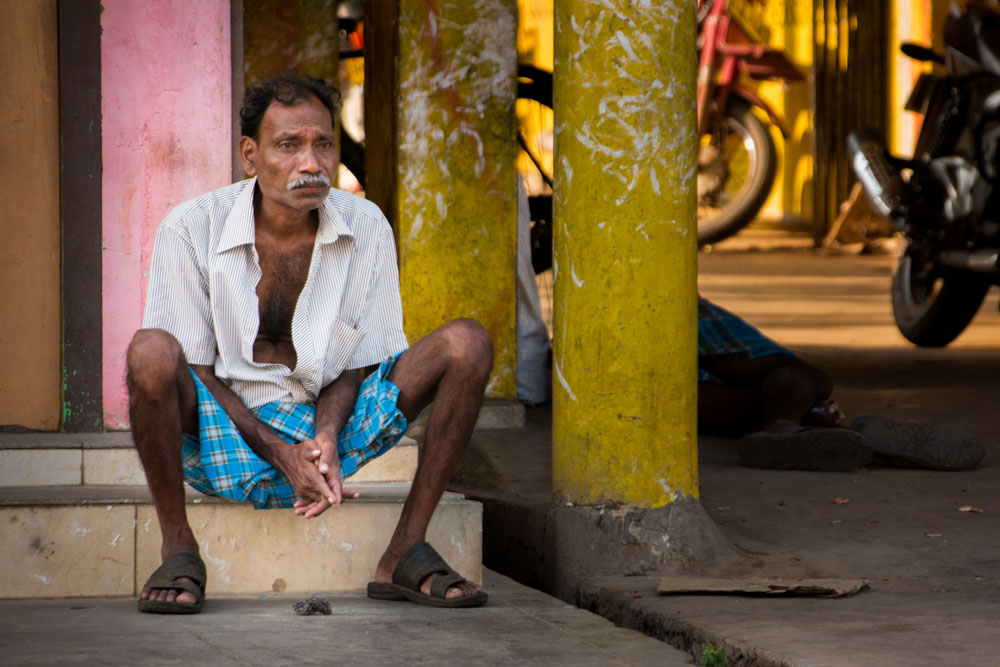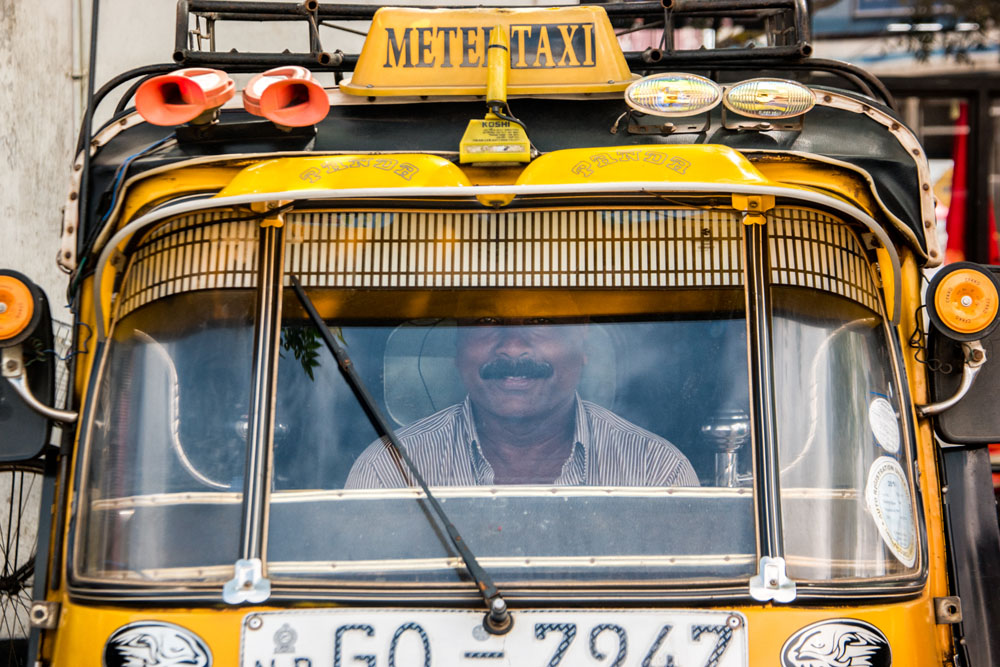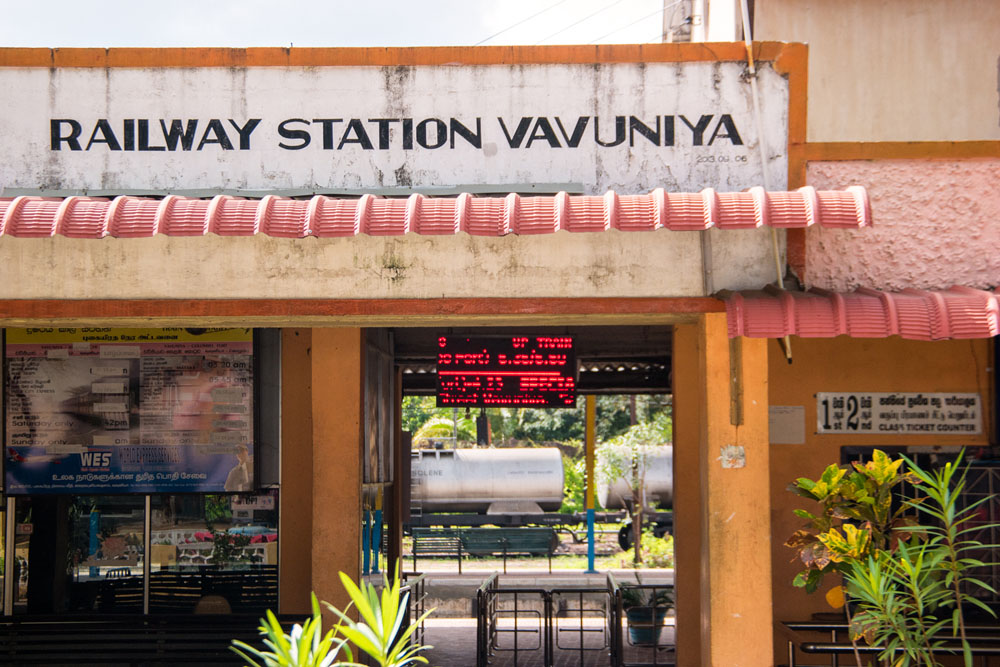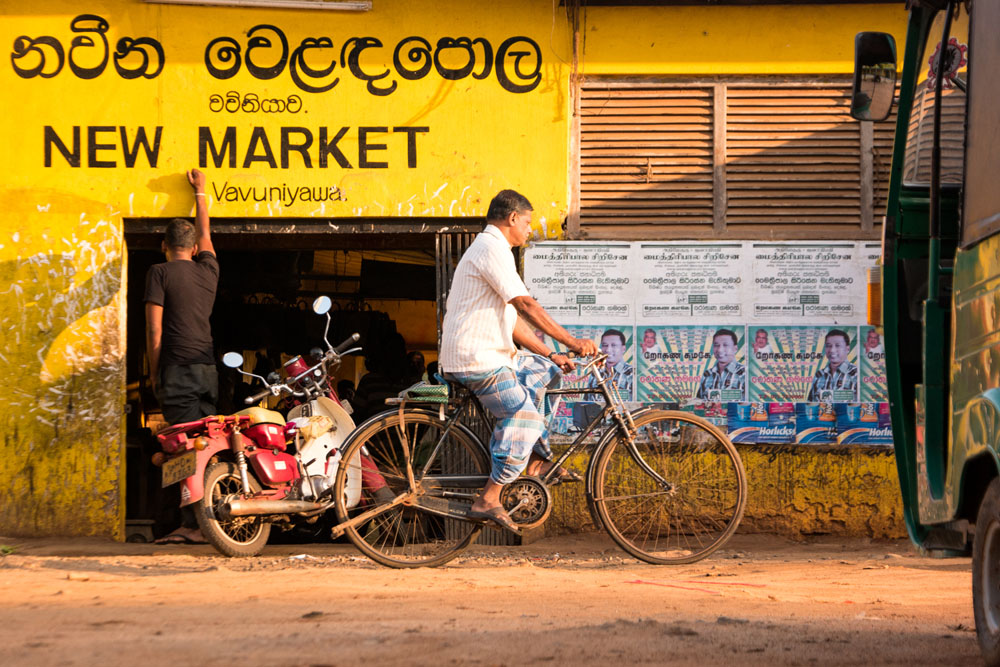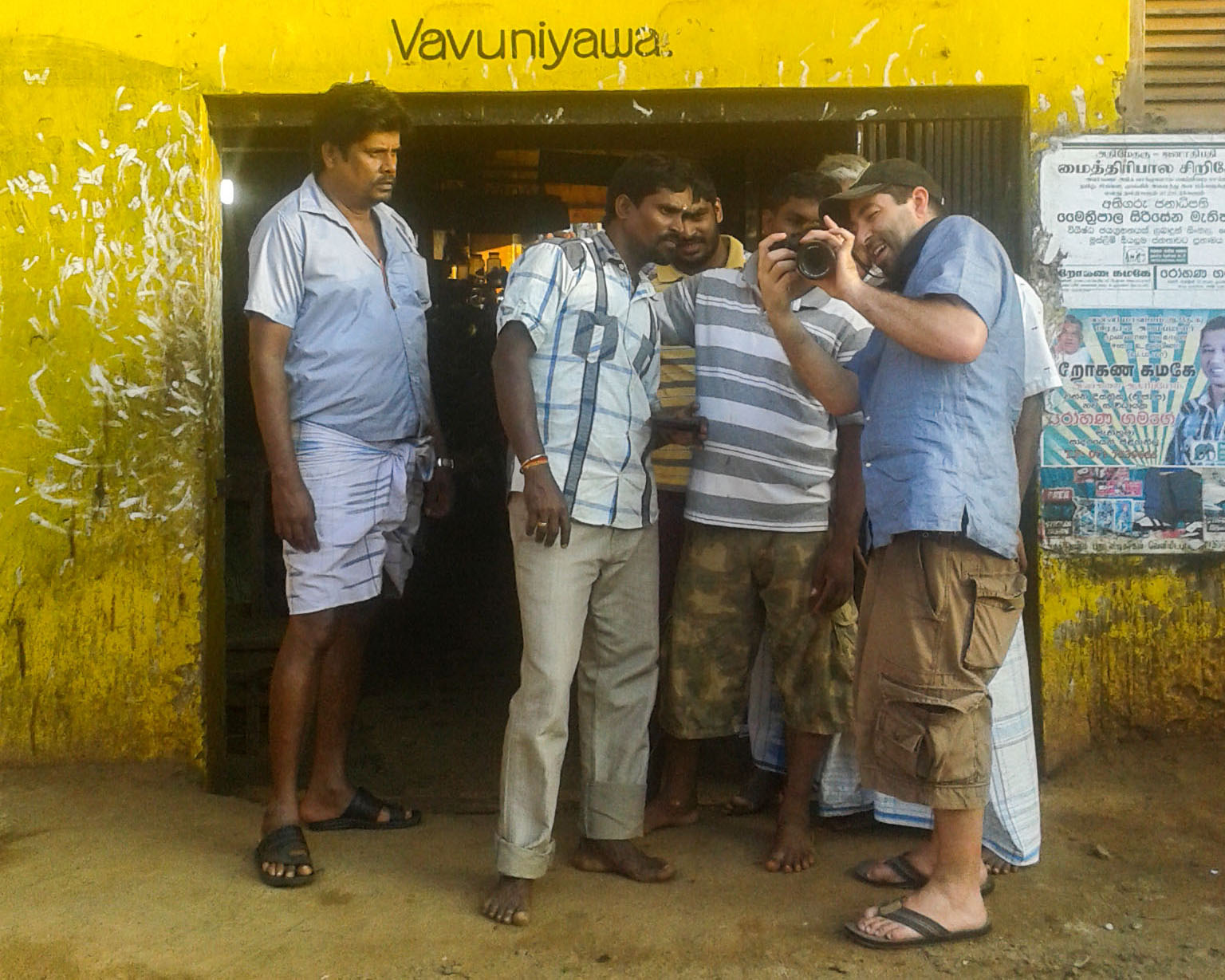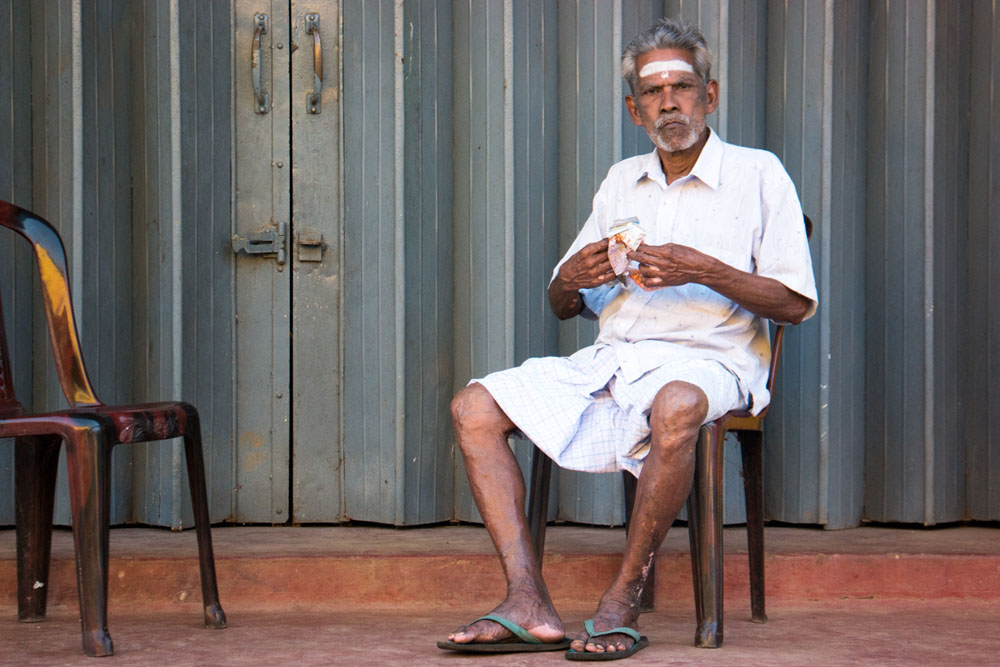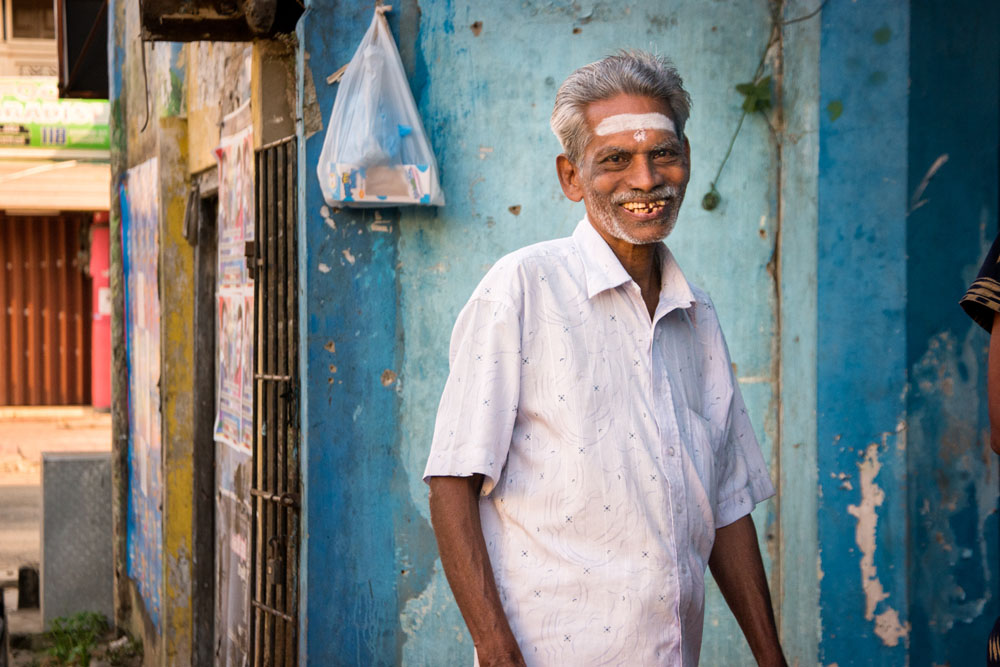When you think to yourself you’ll be taking a trip that would last a little over 3 weeks to the Southeast Asian island of Sri Lanka, and 10 of those days would be spent traveling through, and experiencing some of the lushest landscapes and most culturally significant areas in all of Asia, you wouldn’t think that the most memorable and enjoyable part of the trip would be the other 12 days. The ones spent isolated in a 2-structure walled-in compound built by the World Bank in the outskirts of Vavuniya, one of the most impoverished communities in the country that lay right in the midst of some of the least exciting topography on the island. But this is where the first half of this trip took place, and, save for a 2 hour afternoon excursion between the two workshop sessions, where every second of our time was spent. It’s where we slept, were we ate, and where we worked - one building contains all the administration rooms - 1 classroom, one computer lab, and a few offices - while the next building over houses 3 stories of dormitories, a kitchen, and a dining hall.
On our 3 hour drive from Jaffna to Vavuniya, the seemingly despondent town I noticed from the train that I mentioned in the first part of this series, Nagalingam Ethirveerasingam (who I’ll refer to as Uncle Ethir from here on out, as that, for some reason, is the name Pradeepa decided to place upon him and he very willingly accepted, probably so we wouldn’t spend 2 weeks butchering his name while trying to pronounce it) gave us a short tour of some of the landmarks along the way, including a large army base in which many of the civil war fighters were dispatched from, one of the largest reservoirs in this part of the country which was controlled by almost century-old dams, and a vegetarian restaurant/rest stop adjacent to the area that housed his father’s old bus service business.
Once we arrived, we had but a few moments to settle in before meeting our first group of workshop attendees - 14 mostly primary school teachers from the immediately surrounding areas. They looked at me, I looked at them, we were completely foreign to each other, from the way were dressed to the way we talked to the way we hesitantly approached the ‘do I hug? do I shake hands? do I bow’ pleasantries. But as Uncle Ethir introduced us in Tamil and began to explain to us who they were and to them who we were during my first of what would be very many all-important tea breaks, the initial discomfort began to wear off and was replaced with a sense of anticipation of what is going to be.
This was also when I finally got a chance to see the equipment we were working with. And…well…eh…it suddenly became quite obvious that we were going to be channeling our inner MacGuyver for much of this mission. I won’t lie, I began to get a bit discouraged about whether or not we would be able to be effective to any degree, but when I turned back and saw the faces eager to learn something, anything, I knew I had to buck up! So we’d have to figure a few things out. So what? Ok, more than a few things, but still, so what? This was still part of the experience and so long as they walked away with something they didn’t know before, we could chalk this off as a success. Once I allowed myself to release the unnecessary pressure I put upon myself, it all started to flow. Plus, I wasn’t alone. Not only did I have Pradeepa guiding me through the whole thing, but I was also assigned an assistant, Pirinthika, who, as I would come to find over the next 10 days, would prove extremely valuable. She was an 18-year old student at Uncle Ethir’s S.E.R.V.E. institute described in the last post, who had been the primary editor for the videos over the past 12 months. She not was she able to get me comfortable with Camtasia, the editing program we'd be using, but she also knew English and served as an additional, and vital translator as well. I also got the chance to become more acquainted with Senthil, who's IT skills would prove absolutely invaluable. He was definitely living in an IT-nightmare, doing the job of 20 specialists in a situation that needed 100.
And on the next day...the sessions began. Day 1 was all about script writing. We had them present to us their lesson plans and what the topic of their educational video would be, and then we showed them the structure of, and how to write a basic script and outline for what they would be filming. They didn’t understand at first why we were so insistent to spend a full day on this, for, in broken Tamil-to-English translation, “we know what we want in our heads.” But it certainly became obvious to them all once editing day came around.
Day 2 was all about lighting setup and shooting. We showed them how to set up a 3 point light setup, with, well, 2 lights. Again, equipment was an issue, a serious issue, but figured it would be a good opportunity to also explain to them how to use a reflector and diffusor, but, well, again, equipment was…yup…an issue. We spent almost two hours tooling around town from the only photo studio around to the only place that might remotely have a chance of having a reflector and diffusor, and instead ended up with foam, foil, and glue. Boom! Reflector, Sri Lanka style. Luckily, in the second session, we were able to track down a local newsman who happened to have a 5-in-1 reflector/diffusor combo that he had successfully smuggled in from India.
The most inspiring part of this all came during this day, for this was when they were forced to be creative, perhaps, for many of them, for the first time in their lives, at least in this autonomous sense. You can see that through the years and generations of war, that they were so used to deferment to other ideas, other people, other authorities, and had trouble at first accepting that they could make the decision for themselves in how they wanted to present their work. They were constantly looking for acceptance or an 'ok' until we hammered home that they could create it the way they wanted. There were no rights or wrongs. And little by little, one by one, they broke through. You could see it and feel it! And it was a sight to behold. Off they went with a vengeance. Each group took turns with our single usable camera, and they went and shot lessons covering topics from ‘Tsunami Safety’ and ‘States Of Water’ to ‘Sri Lanka’s Geography’ and ‘Testing For Glucose,’ all the while helping each other out.
Day 3 was all about one thing: editing. This was the day that all the mistakes we allowed them to make on Day 2 would come to light. We’d purposely talk during their tapings to see if they’d notice or stop us. We’d purposely check their framing and if a wall outlet or shadow was invasive, we wouldn’t tell them. We’d purposely not remind them to slate their shots. Because we knew that these were things that we take for granted until it comes time for editing. The time you wish you had done those things. And that’s the sort of thing where the only way to learn is the hard way. Because believe you me, oh believe you me
, once you make those mistakes once, you do EVERYTHING not to make them again. And just as suspected, they started to see the value of everything we had taught them and the mistakes that they made along the way. The frustration shone through on many moments (and gave me horrible flashbacks to my almost-decade of full-time editing), but they powered their way through the longest of the 4 days, taking us well past midnight in each session.
Once were all finished, on the 4th and final day of each session, there was a ceremony, and this was when I realized how big a deal this was. For the ‘graduation’ ceremonies, a top level government official from the office of the Minister of Education of the entire country travelled down to be at the ceremony with us, talk to the students about its effectiveness, and helped hand out the certificates to each of them. There were representatives of the World Bank that had asked for pictures and a report as well. The fact that it was taken this seriously was a particularly encouraging sign for the future of education in Sri Lanka and I felt more and more humble to be able to be a part of this thing, however minor. It just felt good.
By the end of the 10 days, we all started to become family. It was difficult to say goodbye and so amazing and inspiring and encouraging to see how far we had come. We laughed together, a LOT. We dined together, a LOT. We had the all important tea breaks, a LOT A LOT, we got to know each other and opened up
to each other more than I thought we would. It was 12 of the most important days of my life, for during those 12 days, I was fully present - in every single moment, all of my senses were alive, being exercised, being challenged, and every single one of those moments was beautiful because of it. We all put our heads together, our enthusiasm together, our ideas together, and despite language barriers and obstacles that ranged from electricity suddenly disappearing to a room full of absolutely useless computers that could barely handle the minimal stresses we were putting on them, to lack of proper (and in many cases
any
) equipment and burning out fuses on powerstrips, every single one of those teachers ended up successfully writing, shooting, and editing their very own educational videos. And you should have seen how proud and tall they stood besides their work. That sort of empowerment is something that hopefully will stick with them as strongly as it has with I.
Needless to say, these teachers weren’t the only ones learning. I got one heck of an education myself. Not only did I learn about their culture and customs and interests, but I also learned valuable skills myself, including how to wash my own clothes in a bucket while the lot of them laughed at me from across the yard as I hung them on the fence separating the property from the village. I also learned that their generosity is ingrained so as much if they find out you like something, they go out of their way to make sure you get that thing. The example that pops to mind was what happened in the middle of a blazing humid long day.
We were in the midst of a lesson in proper lighting, and I heard a jingle make its way through the window, and before I can even think about it, my hot sweaty self blurted out “is that an ice cream truck!???” They, of course, had no idea what I said, they just saw a startled me and looked at each other blankly. When one of the translators told them, they all laughed out loud hysterically at me as I was digging through my pockets looking for rupees preparing to run down the dirt road in search of the nirvana that would have been that first bite of something cold in days. They stopped me, and told me it was a bakery truck, basically a small truck that goes around selling bread to the local inhabitants. When they saw my disappointment, they laughed even harder.
At the end of the 12 hour day, about 7 hours after the event, the grounds keeper and manager of the grounds showed up with his wife and 6 year old child, and along with a group of the teachers, handed me a pint of ice cream. I damn near almost cried. This turned into a tradition that they repeated…every night for the next week. The even crazier part was, they all had to pitch in to get it, and there was no fridge or freezer, so, to my insistent behest, they took it to a friend of theirs in town who owned a small store who had one of the only freezers around and housed the ice cream there almost every day.
Another thing I learned was to pay ever more attention to perspective. As testament to how isolated we are in the West to the rest of the world, when it came for presentations on the final day of each session, many of them felt bad about how many mistakes they had made, so we came up with the idea of showing them blooper reels from the top actors in Hollywood, just to illustrate that everyone makes mistakes and that they shouldn’t be so hard on themselves. When I figured I’d look for Johnny Depp or Tom Cruise bloopers, I thought of course they’d know who those people were. But when I asked them, they looked at me blankly. I went as far as to ask them what famous actors they knew, they responded the only Americans they knew were Schwarzenneger and Obama.
What I couldn't wrap my head around was the way they spent their time when they weren't working. The leisure time we so feel entitled to way too often in our 'civilized' and 'developed' cultures was an extreme commodity to these people. They felt blessed to get any time at all, and any of that time was always spent with family and friends - talking, eating, laughing, crying, helping, living. Career never took top billing. It was literally impossible to ignore how genuine and open and happy they were, despite the poverty and unfathomably harsh conditions they live in, and I couldn’t help but attribute this health of spirit and soul to where they rest their priorities - their human interpersonal and community based interactions and communications, something perhaps can be argued, we're only recently coming around to in our sprawling-gated-community-metropolis-laden-self-imposed-big-box-store-isolation-tanks.
After all, in the end, when you look past the superficial, the noise, the things we do and use to fill the spaces between our boredom, the things we put our stock in, all that’s left are family, friends, memories, emotion. And it’s hard to argue that there’s anything truly more important.
After seeing what they go through and how they are forced to live, it’s hard not to come back home and not feel like every problem I thought I had was so…
trivial
. Perhaps because they have been through so much - there’s literally not a single person in this part of the country that doesn’t know of someone, or is related to someone, that was either killed or maimed by war - those very aspects seem to be the central and primary focus of every one of their actions. And it’s a shame that often times we don’t really put enough stock in those things until absolutely necessary when they are the very things that should embody our every action, our every thought, our very being.
Anyhow, enough of my mush (for now). Below you’ll find a gallery of selections from those two sessions with the teachers and students as well as several images from the only times I really got a chance to check out the town of Vavuniya itself. We had a 2 hour window to head into town, pick up some supplies, and catch the final hours of the afternoon light. This is where the poverty and harsh conditions really hit home. We’re fairly isolated in our compound, but what each of the teachers in there these 10 days knew as everyday life, is what I had 2 hours to observe. You could see it in their faces. They knew things. They’ve seen things. They’ve done things. They’ve experienced things. Things that most of us could never even imagine. They were definitely jagged around the edges, but all it took was a simple hello, and they were surprisingly quick to open up with the warmest smiles and greetings you could ever feel.
Two situations that illustrated this happened within those two hours. At one point, I was standing in front of the central market as the golden hour light was falling upon the facade of the building. I found myself an angle and as I knelt down for several minutes waiting for the moment I wanted to capture, the entrance way started to fill up as they noticed me. They didn’t seem all too happy about this yahoo aiming a big black box at them, so I figured this was probably a good opportunity to give them a peek of exactly what I was doing. Once I showed them what was on my LCD screen, it took all of two seconds for them to start smiling, posing, and ham it up for the camera as shown in the sequence if you click this image:
The next instance was in an alleyway behind that same market. There was a man sitting alone and desolate, eating something from a foil wrap. I stood across the street and started snapping a few images. The colors of the building and the framing of the doors around his chosen spot were striking to me. At one point, he noticed me, so I walked up to him, showed him the back of the camera, and, again, immediately his demeanor went from despondent and skeptical to cheery and open. Click the following image for a slideshow of that sequence:
It was quite obvious that after all they had been through, despite their rough exteriors, they all longed for an opportunity to open up and express all the emotions that define beauty. To be able to open up and trust and climb out of the understandably hardened shell was something they seemed to yearn for, and jumped at any opportunity to do so.
Anyhow, that’s more than enough for this time. Next time in Part 4: The Creature Comforts Of Colombo, I jump into the beginning of the second half of this trip, where I reaquaint myself with the creature comforts of Colombo before embarking on my solo journey through the country.
If you'd like to start from the beginning at Part 1: The Most Meaningful Work I've Ever Done, click here.
And for more of my mehs and blehs:
Instagram:
Ello:
Google+:
All images and videos for this series of blog posts were shot with a Samsung NX1
If you support the kind of work I’m doing and the things I’m sharing, please consider ‘subscribing to me’ on Patreon.com. Yup, subscribing to ‘me.’ You can even set the price. Literally, $1 per month if you want. No joke, your little helps me a LOT.
